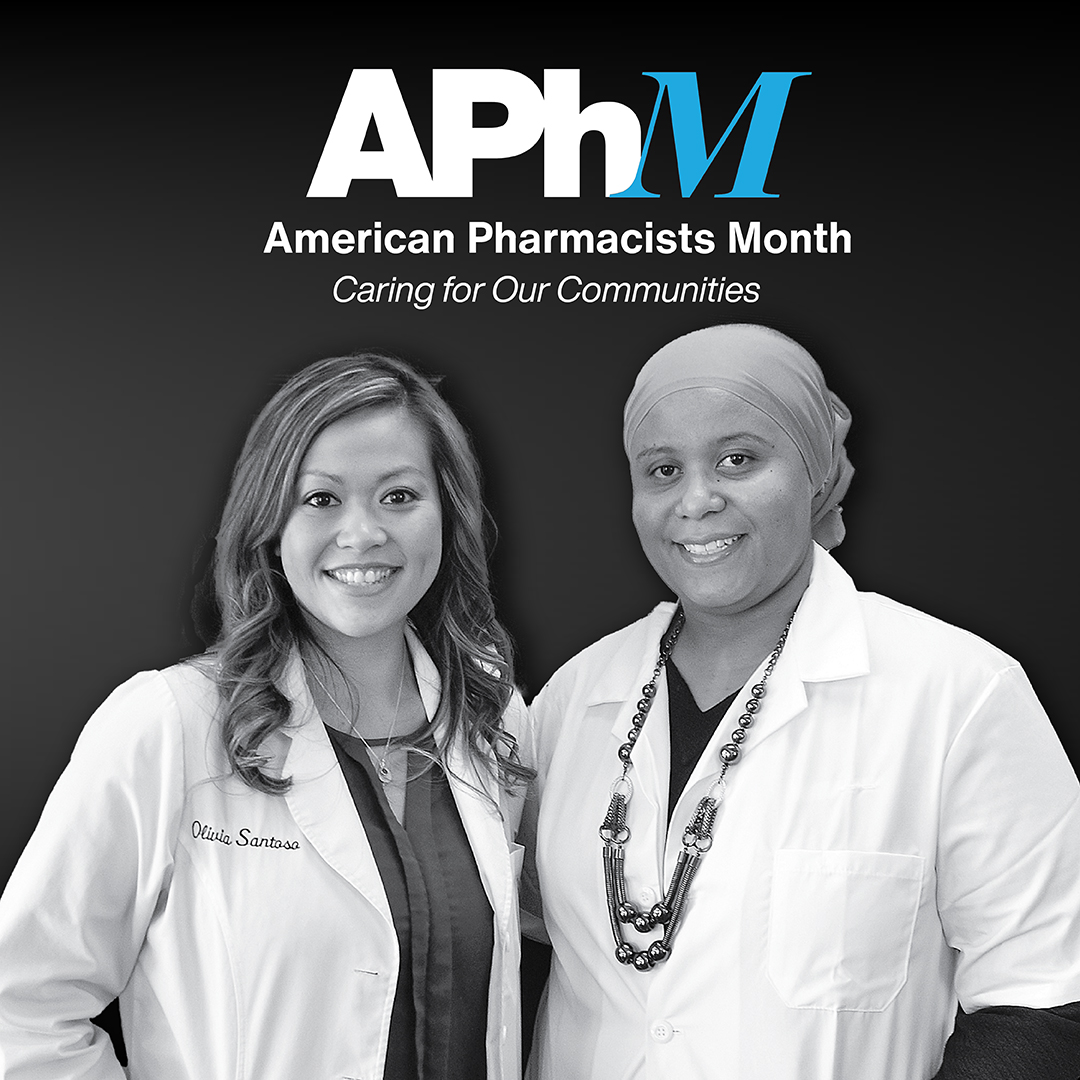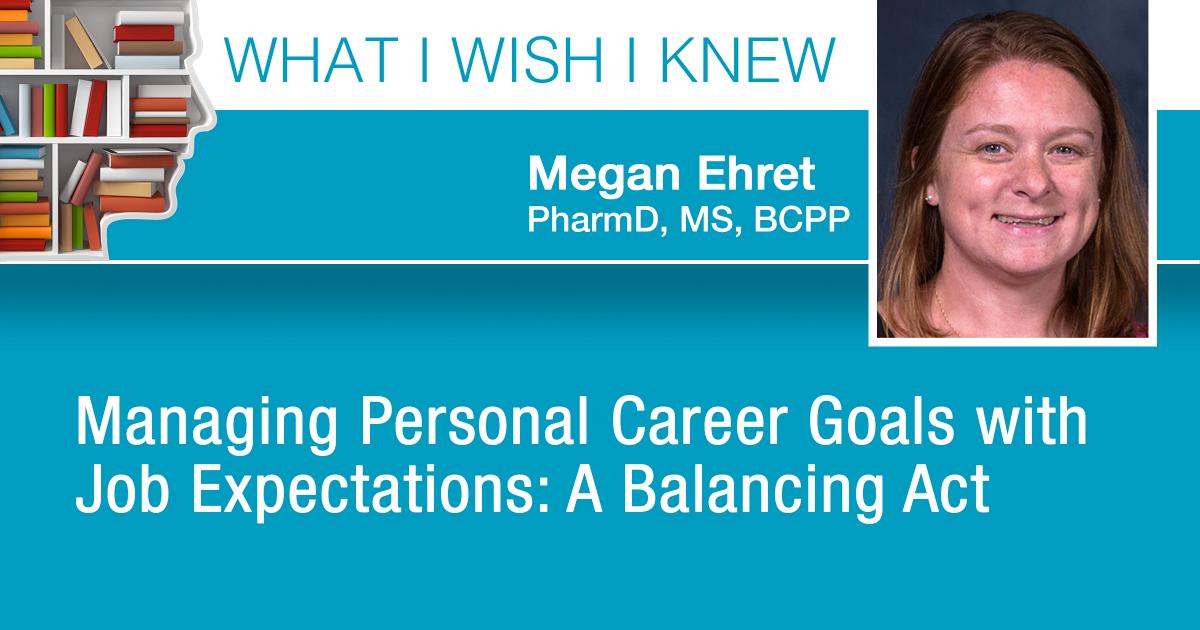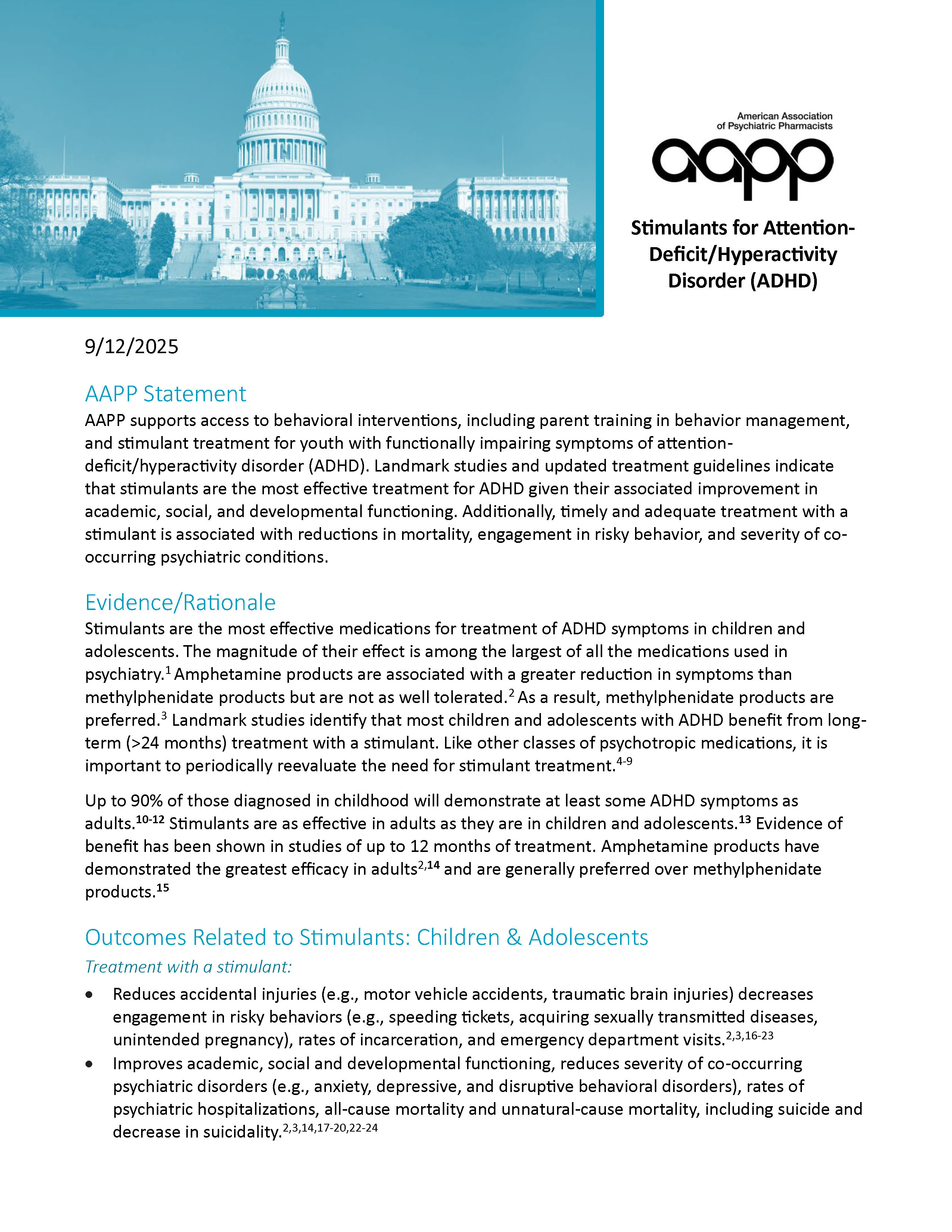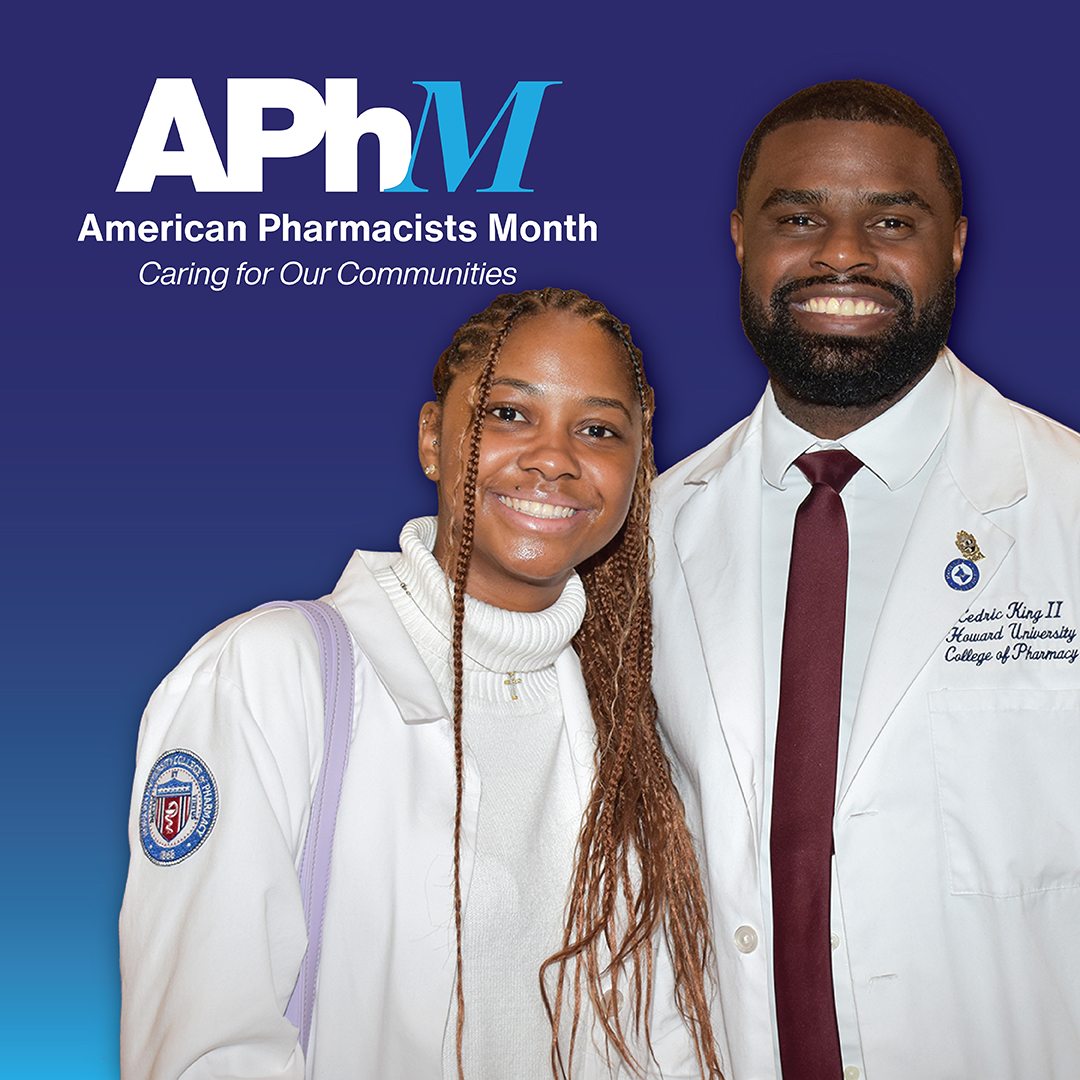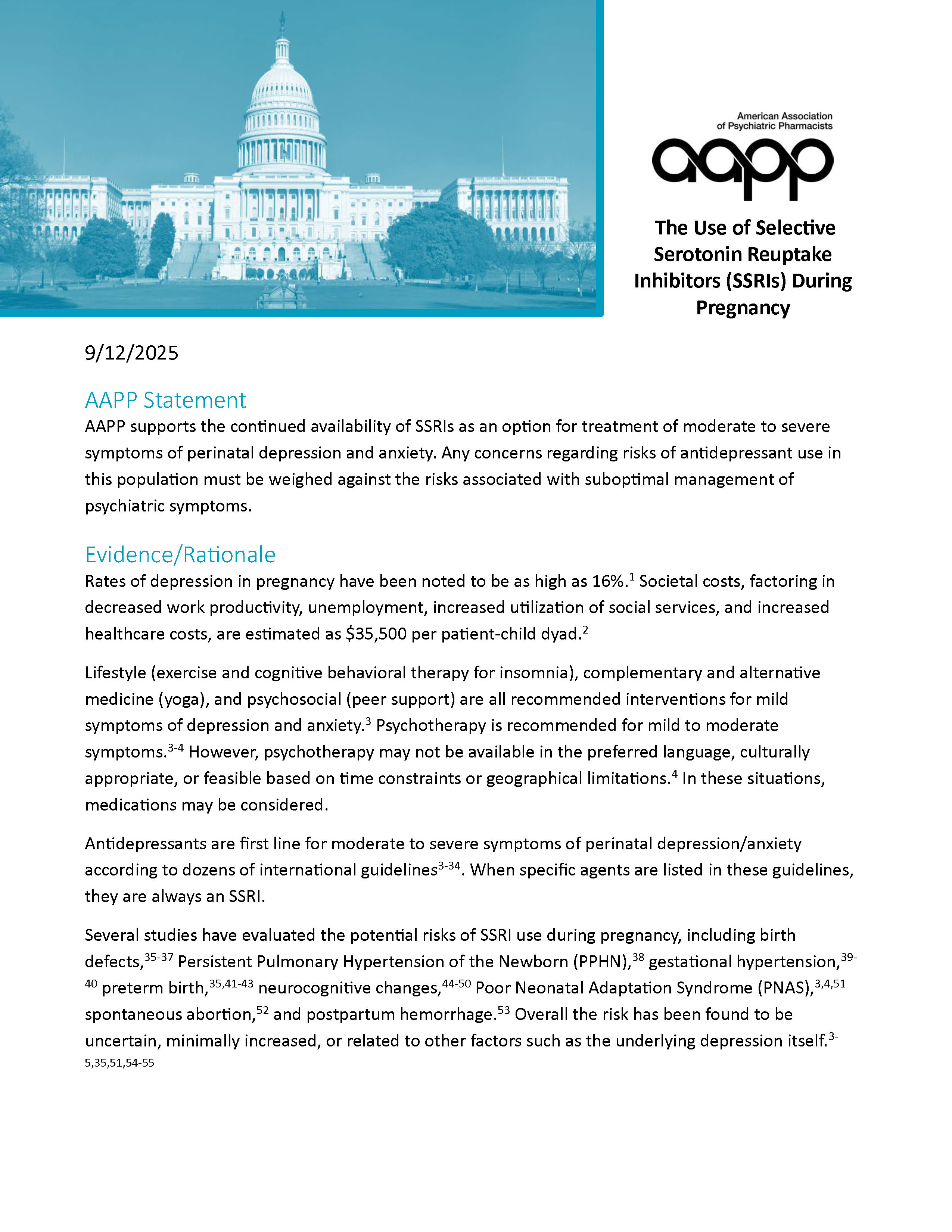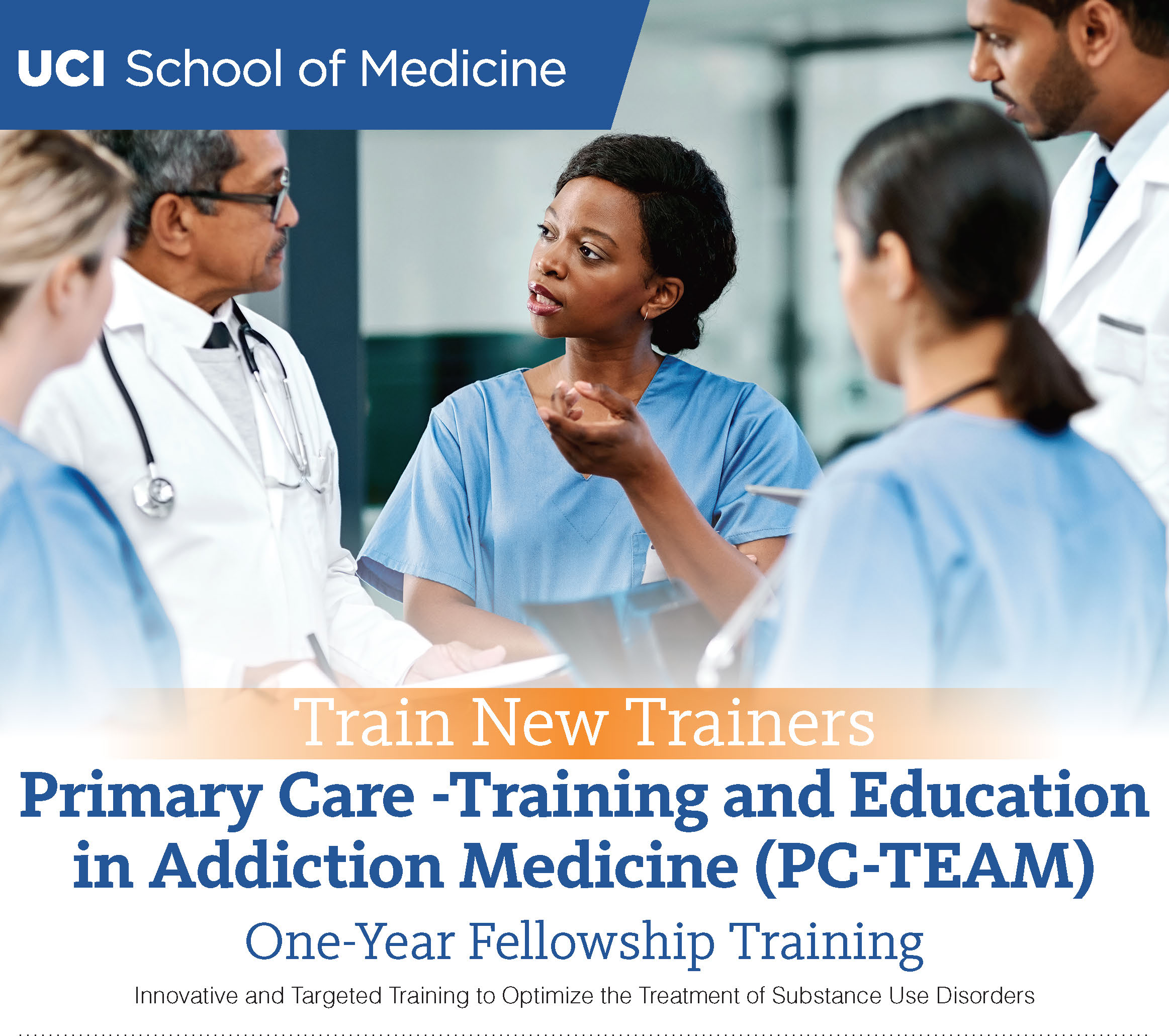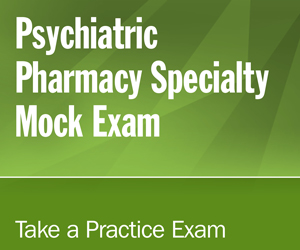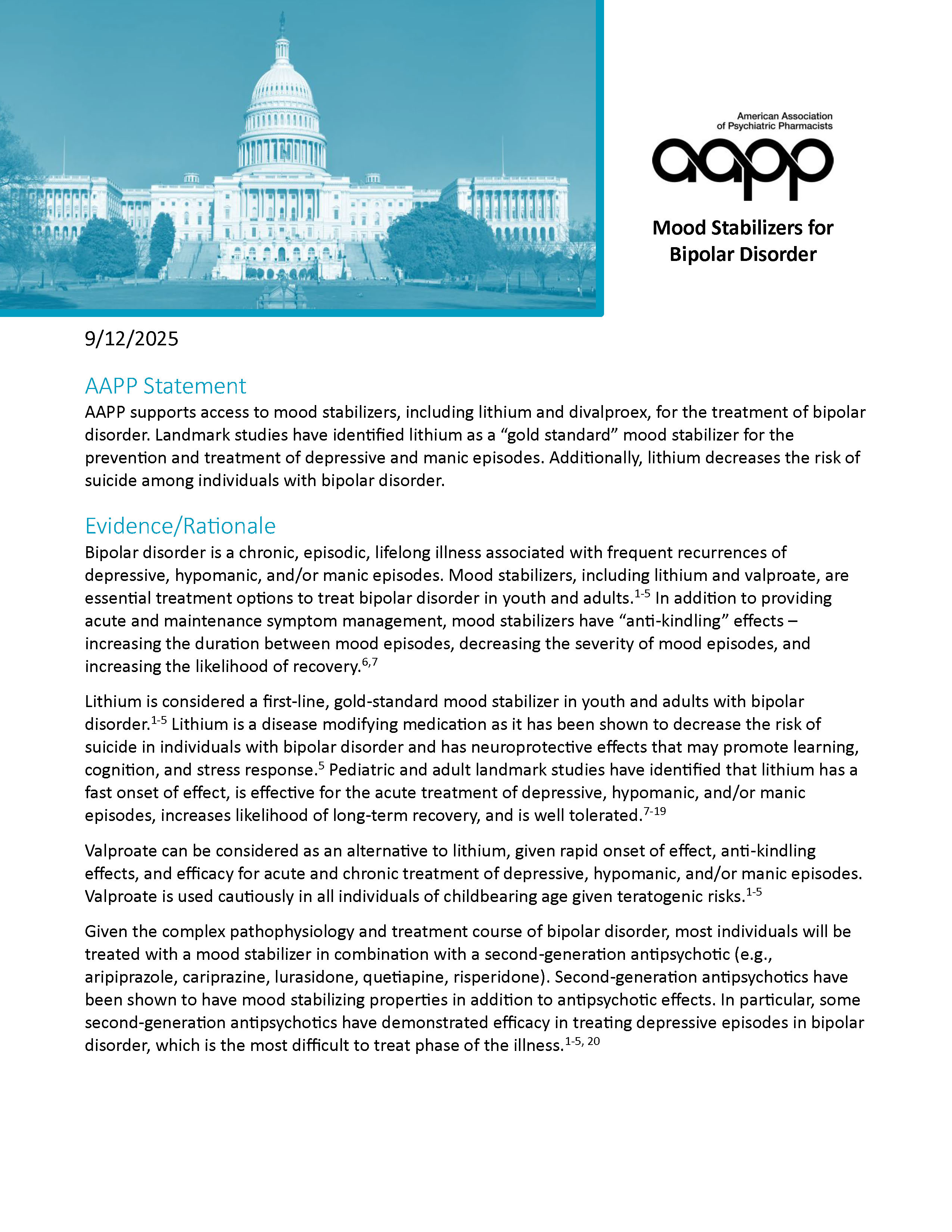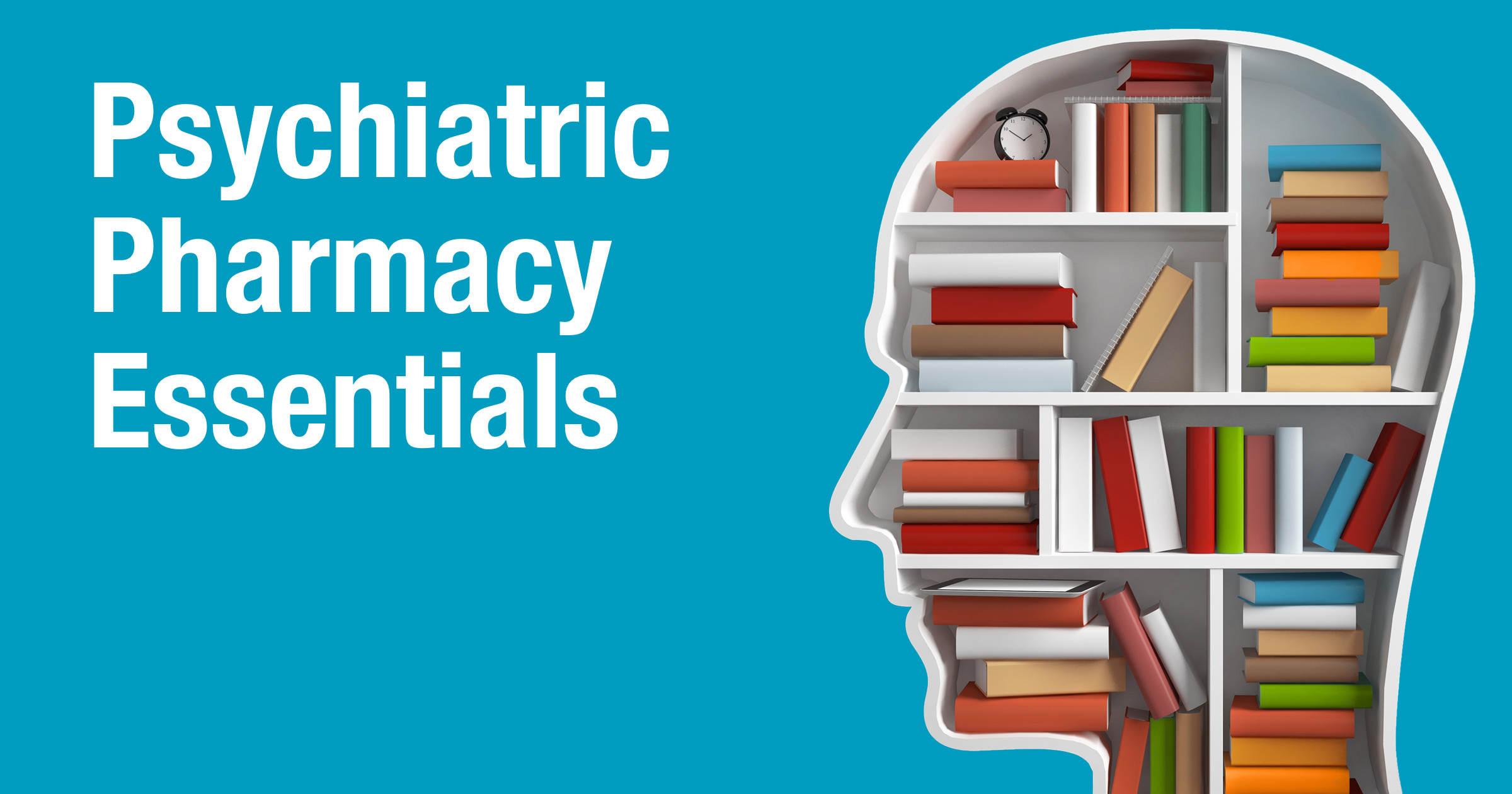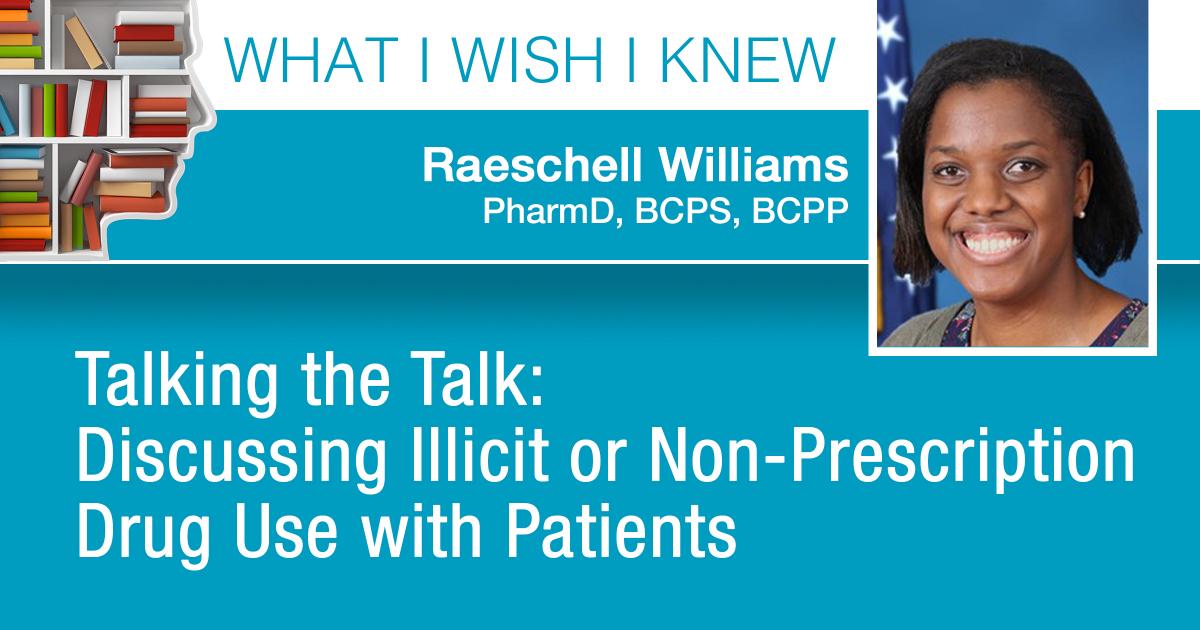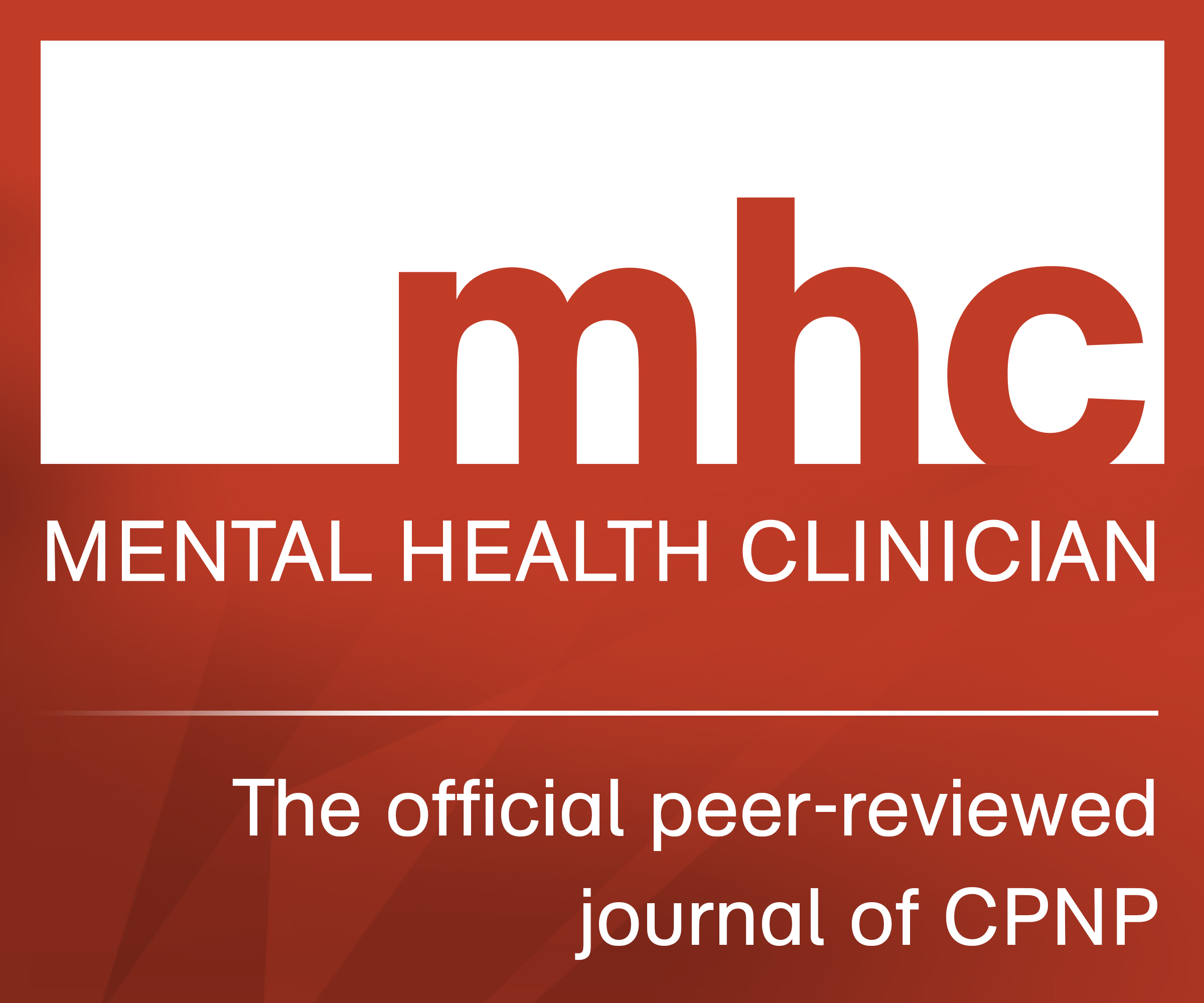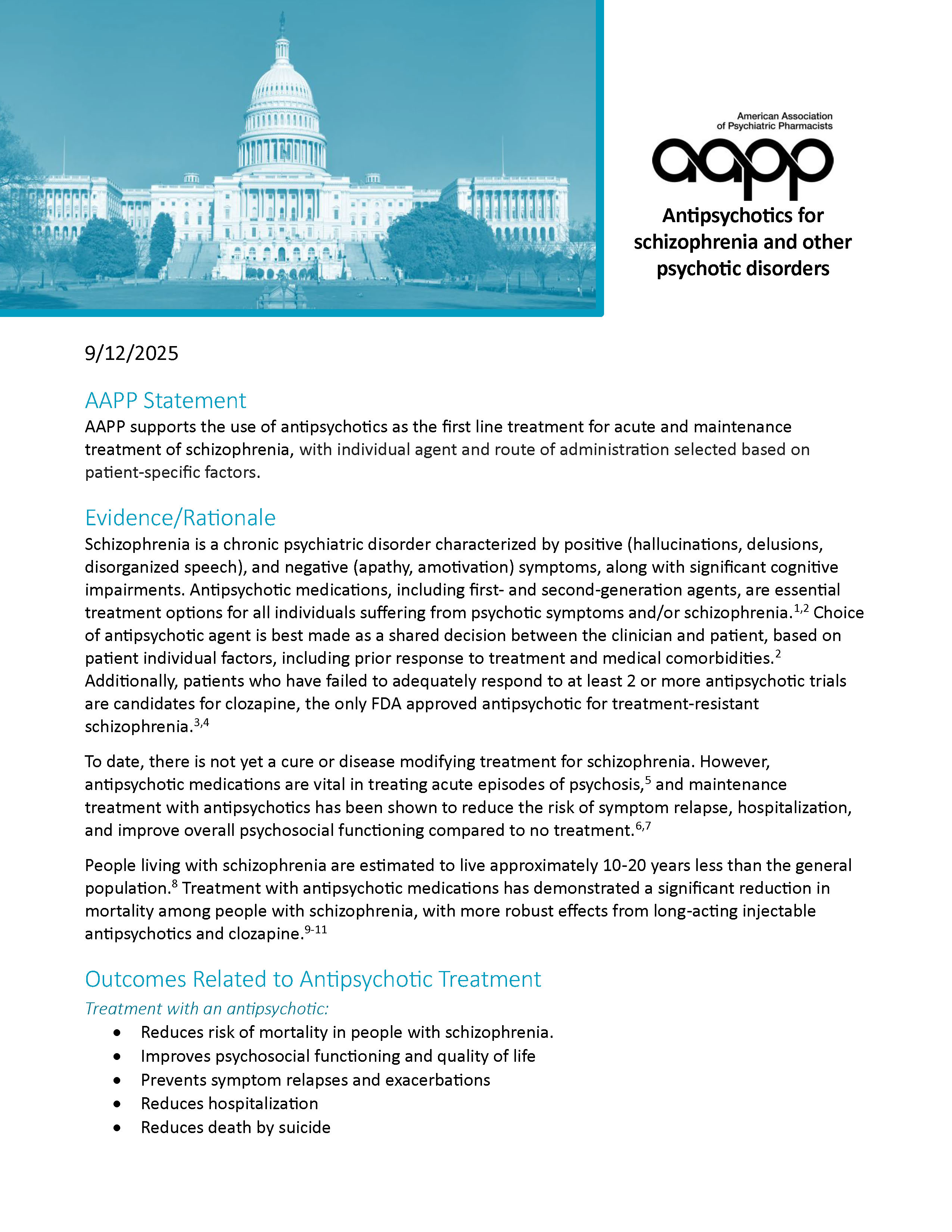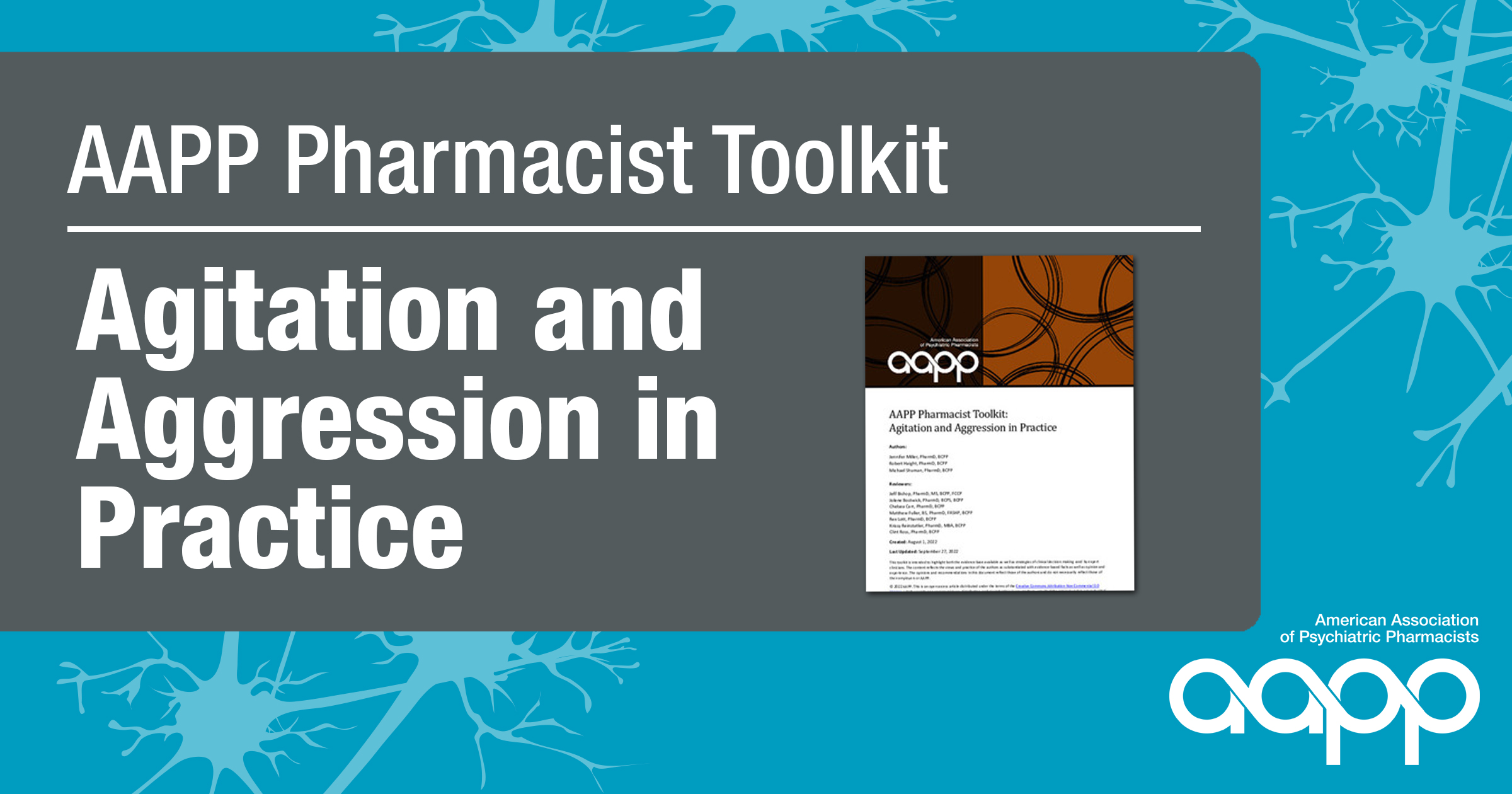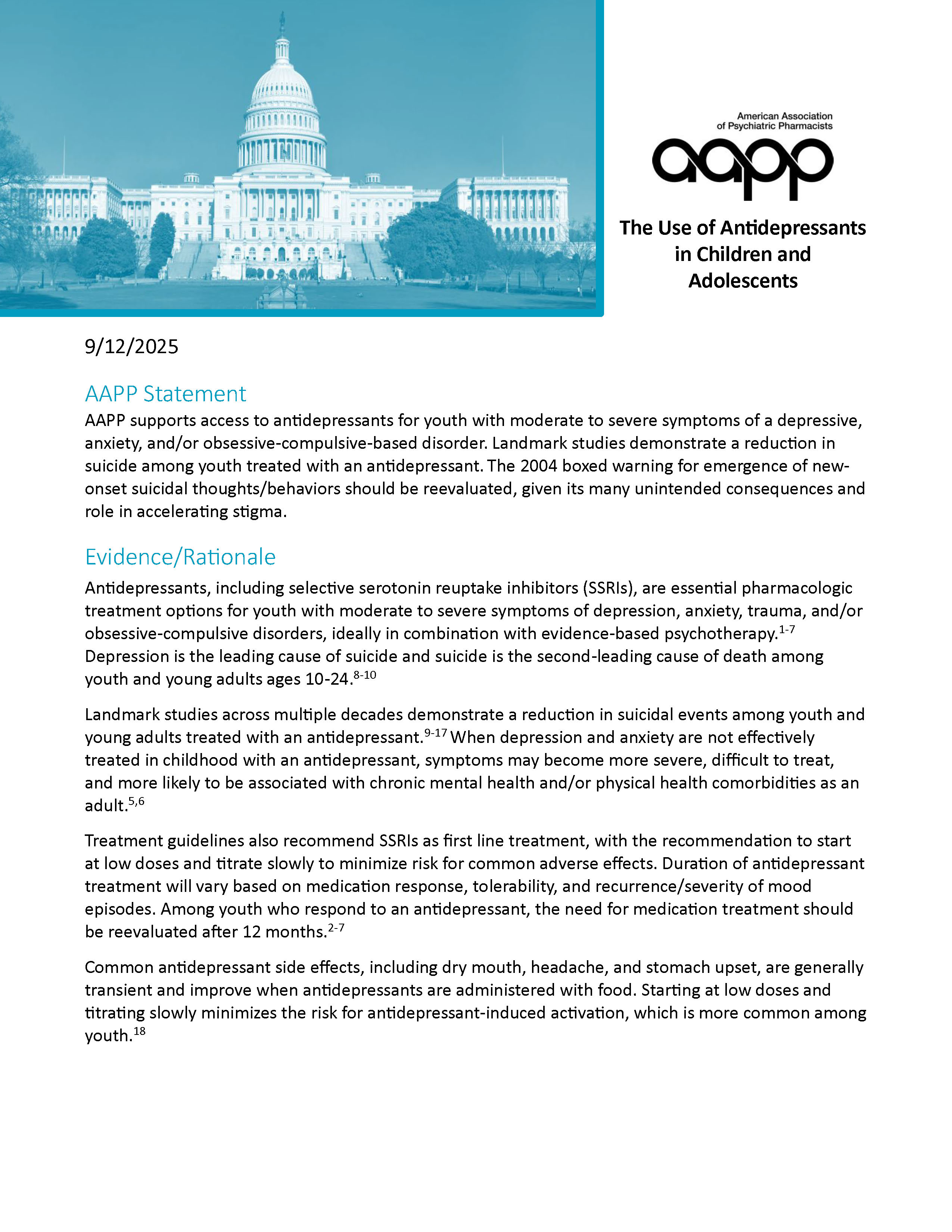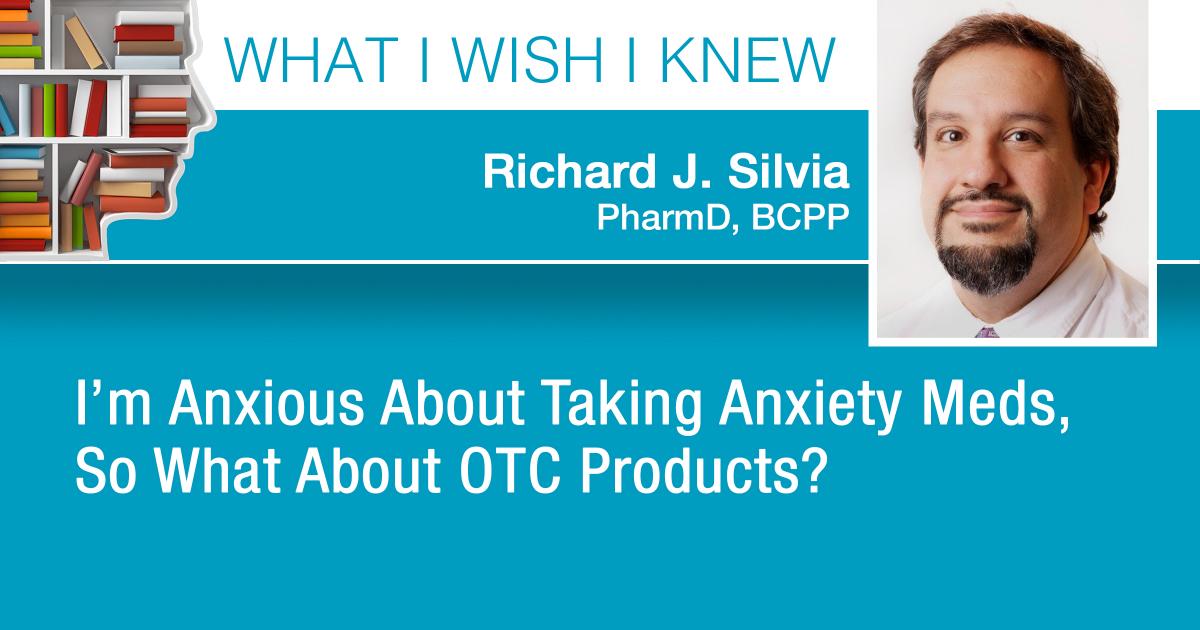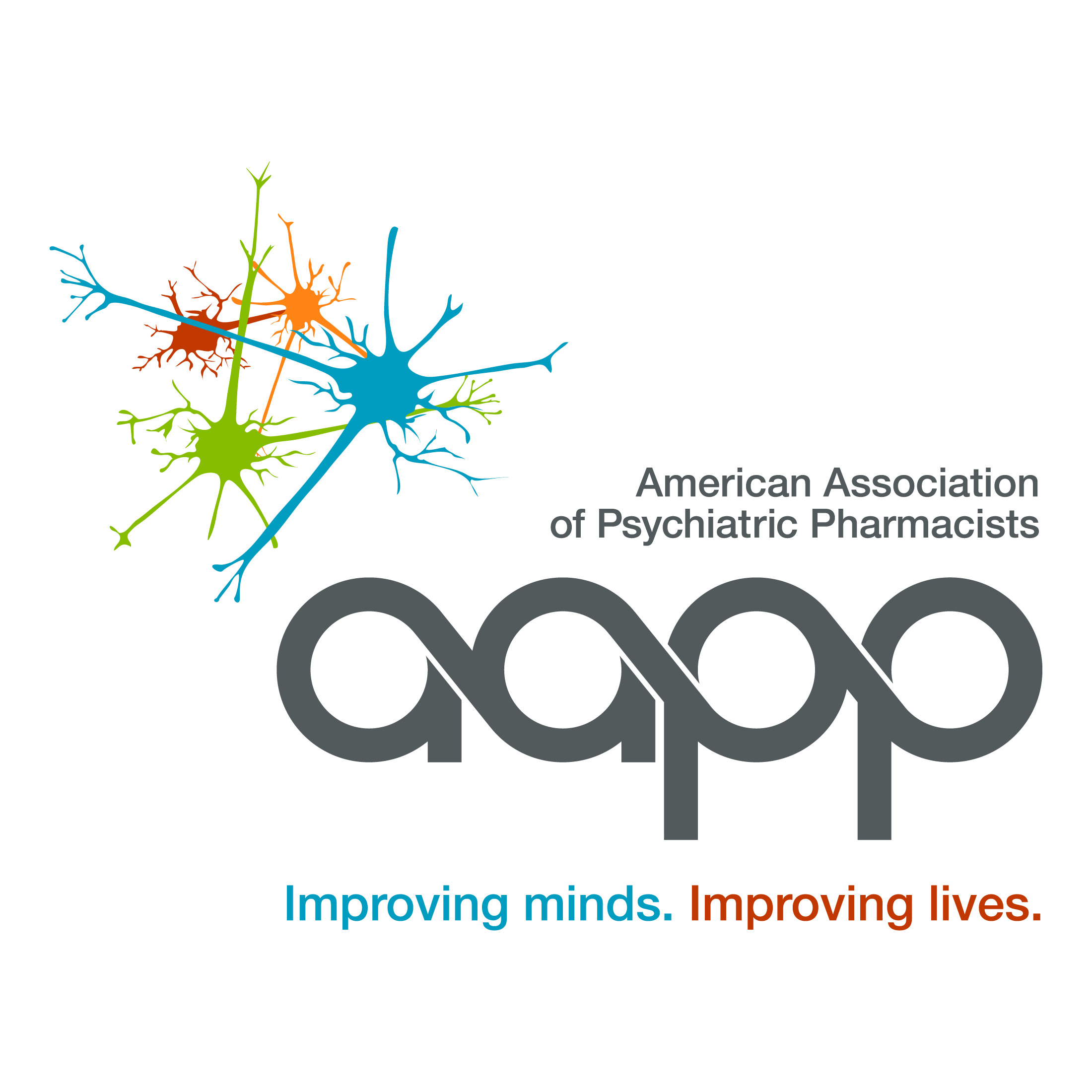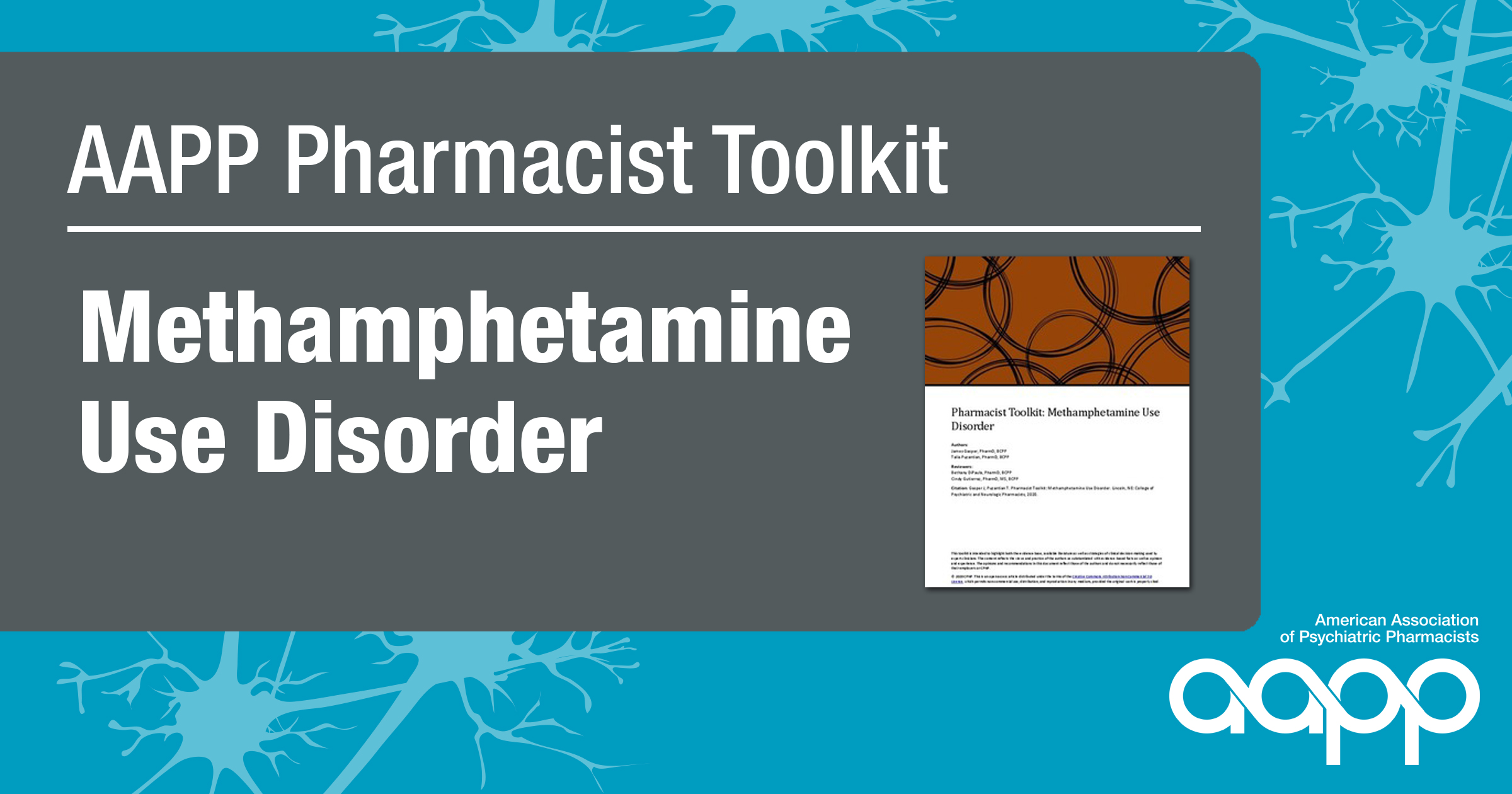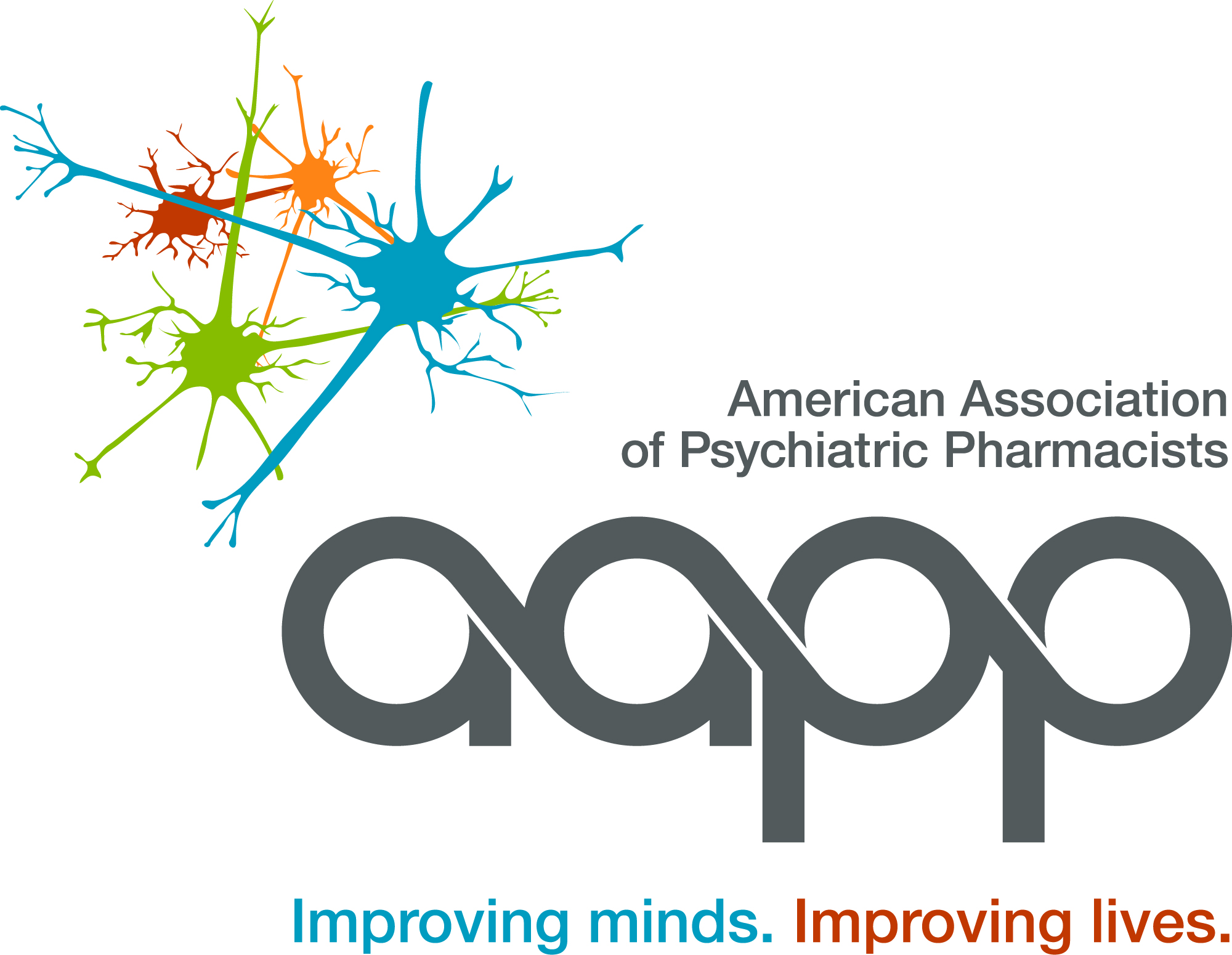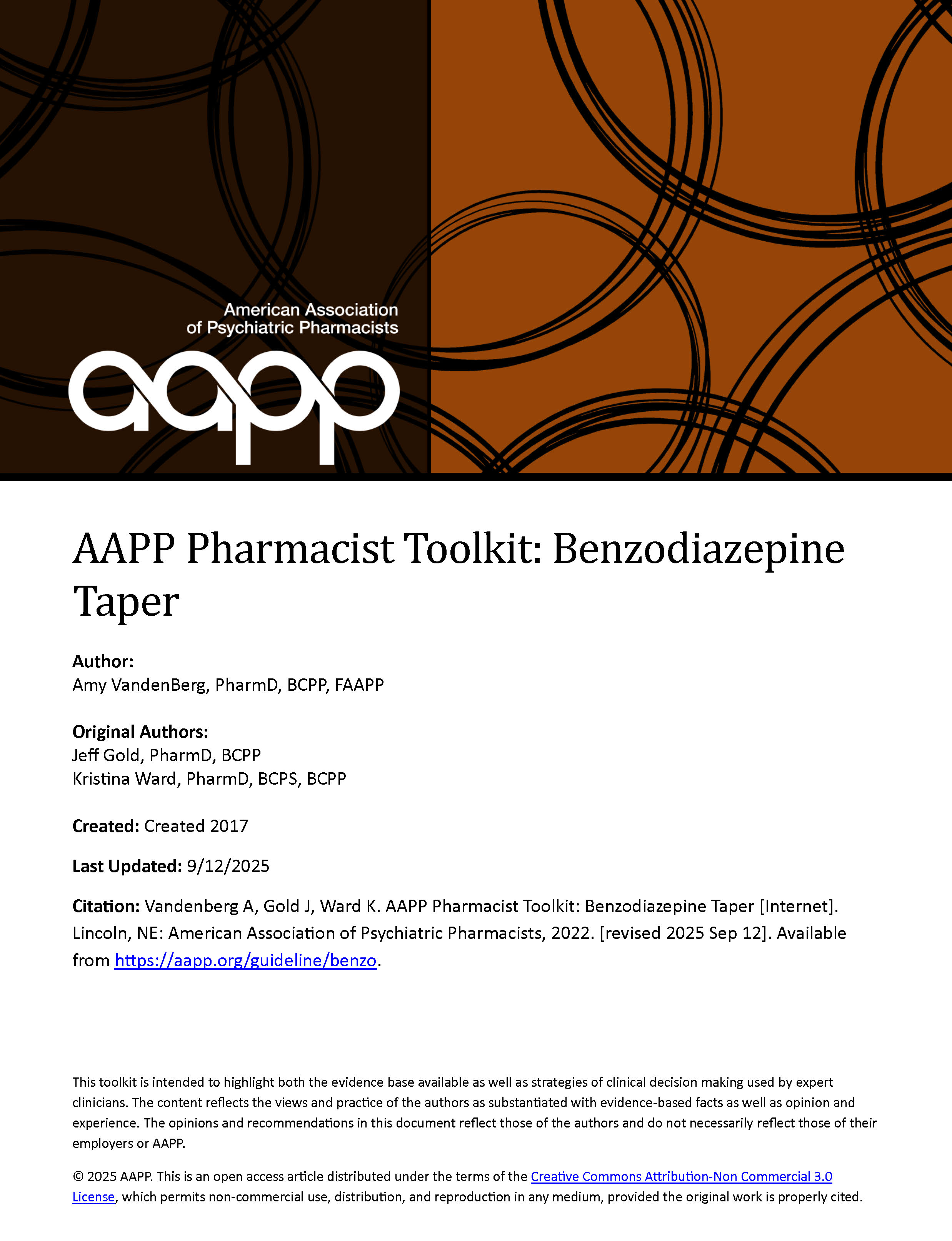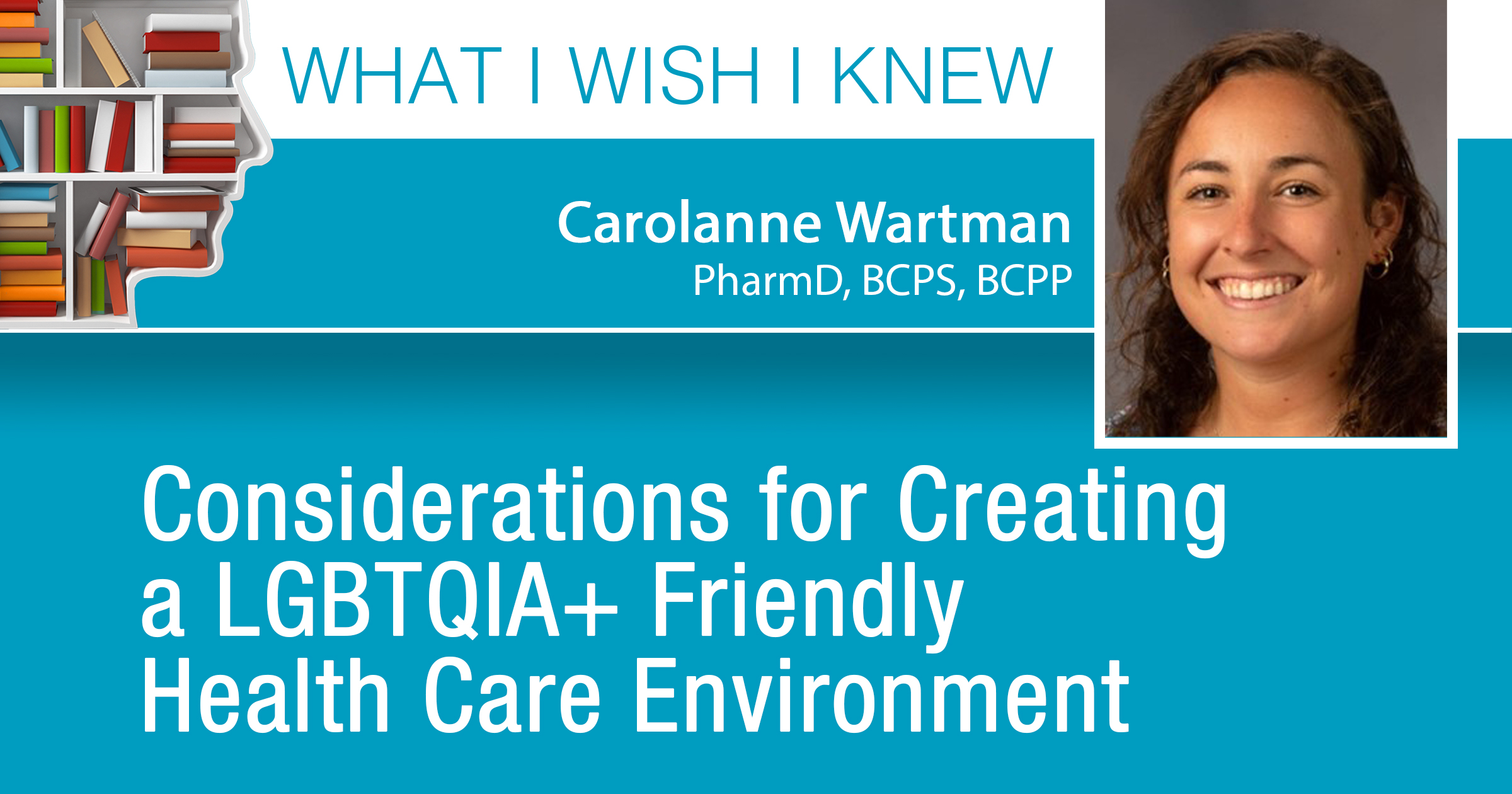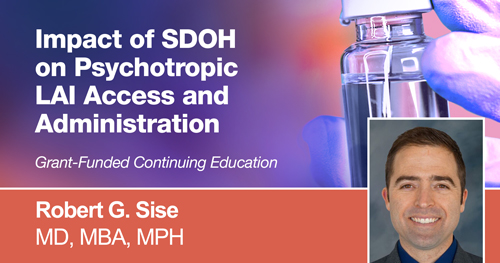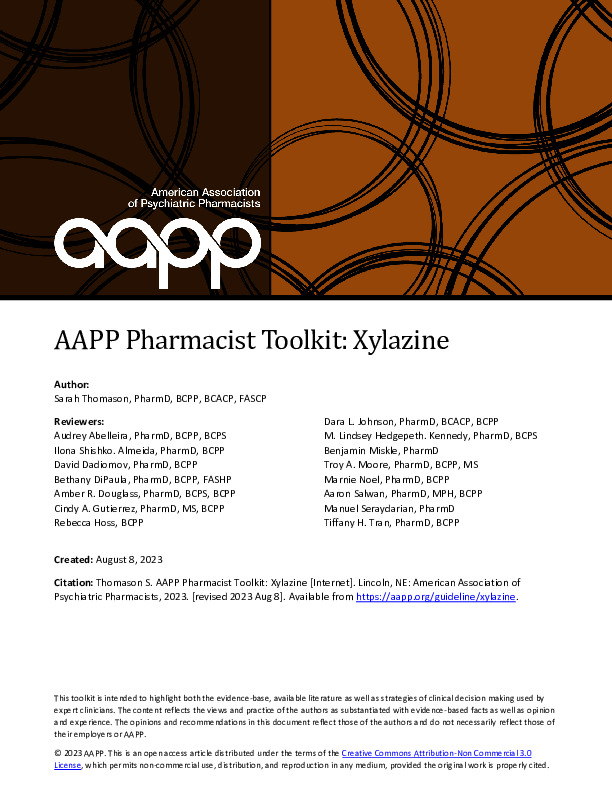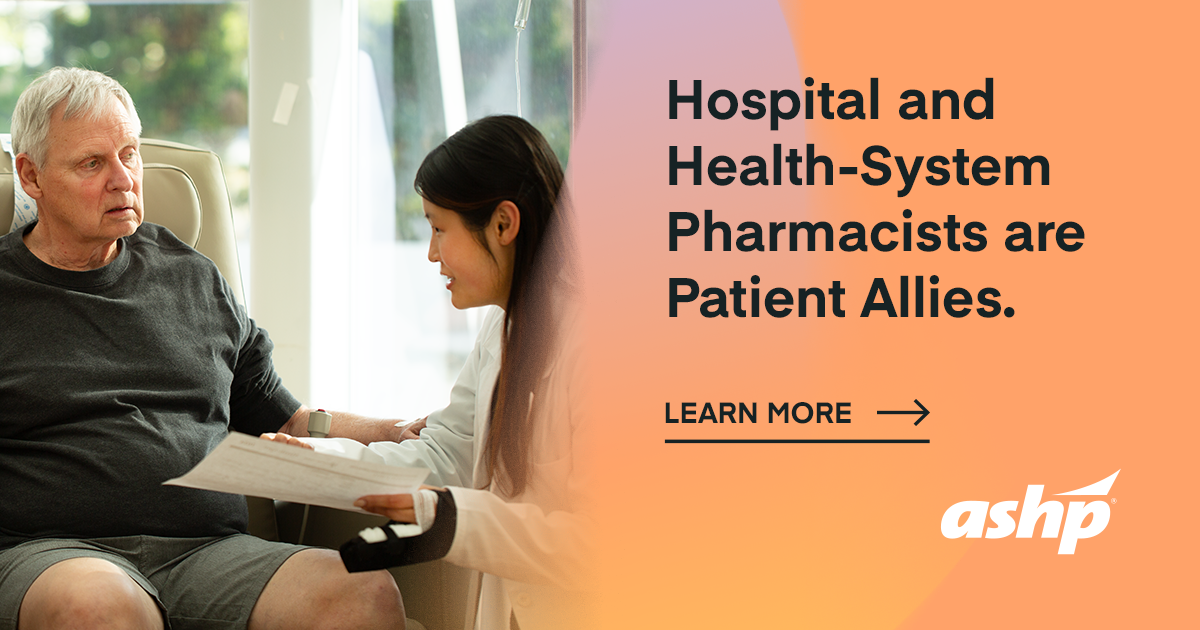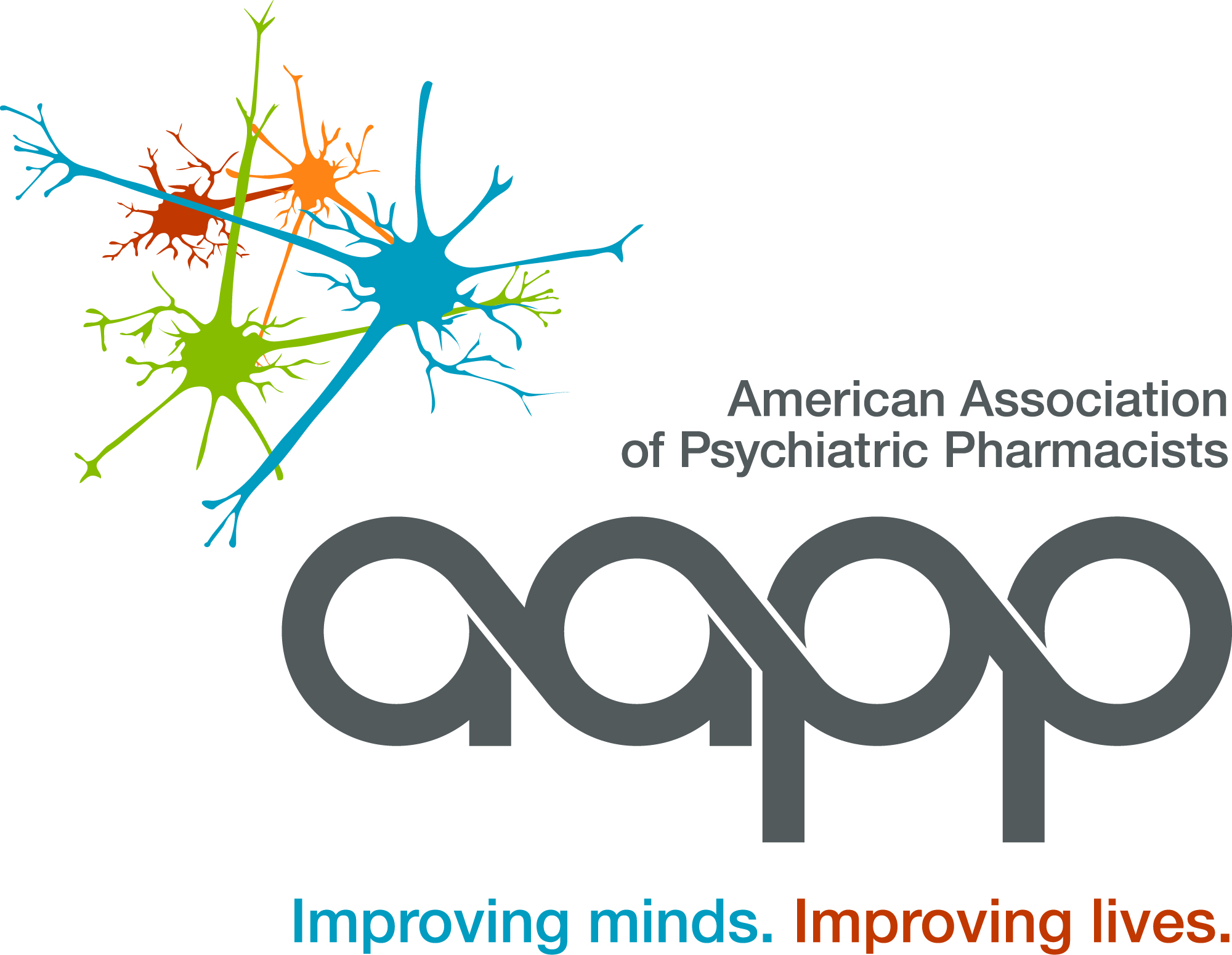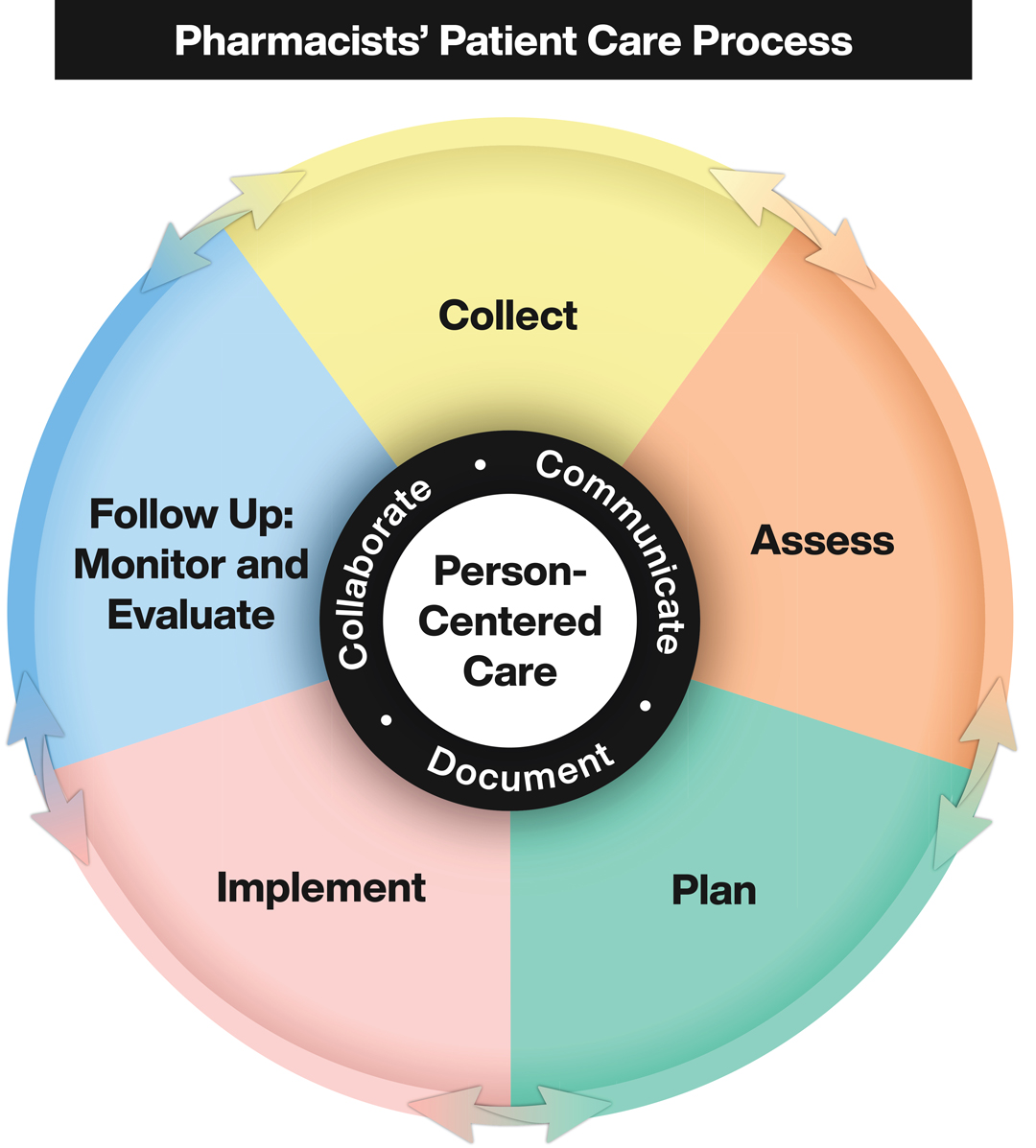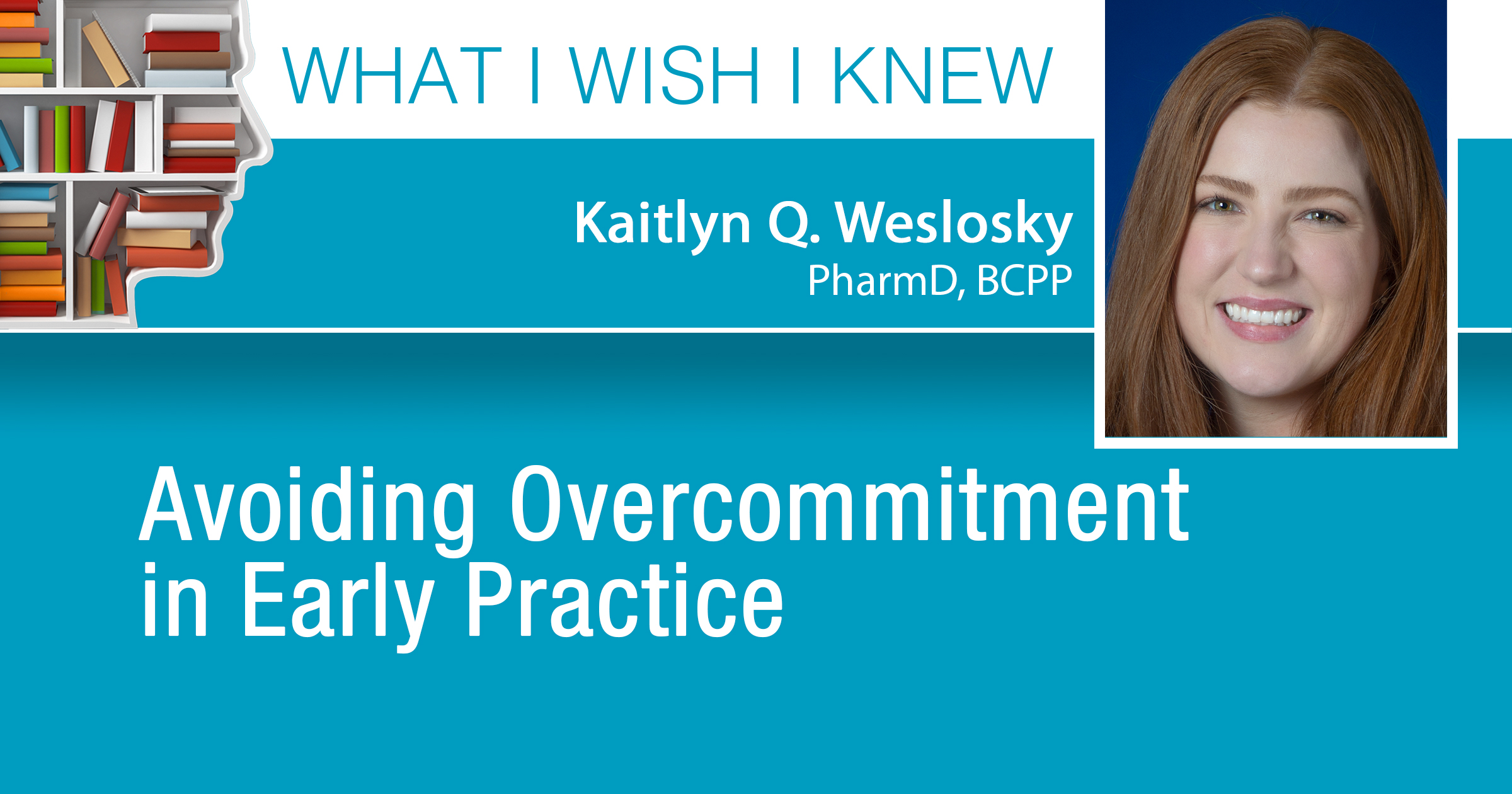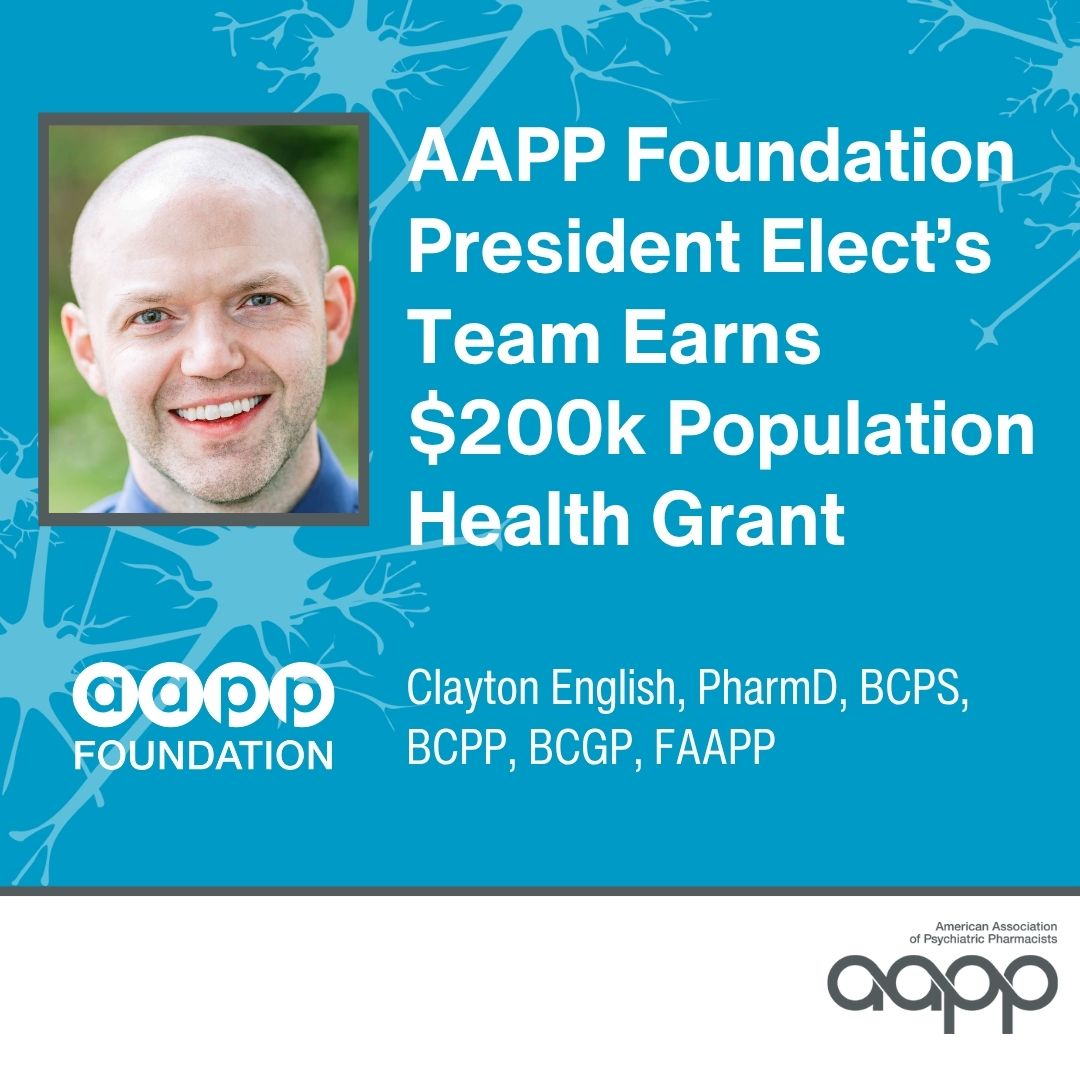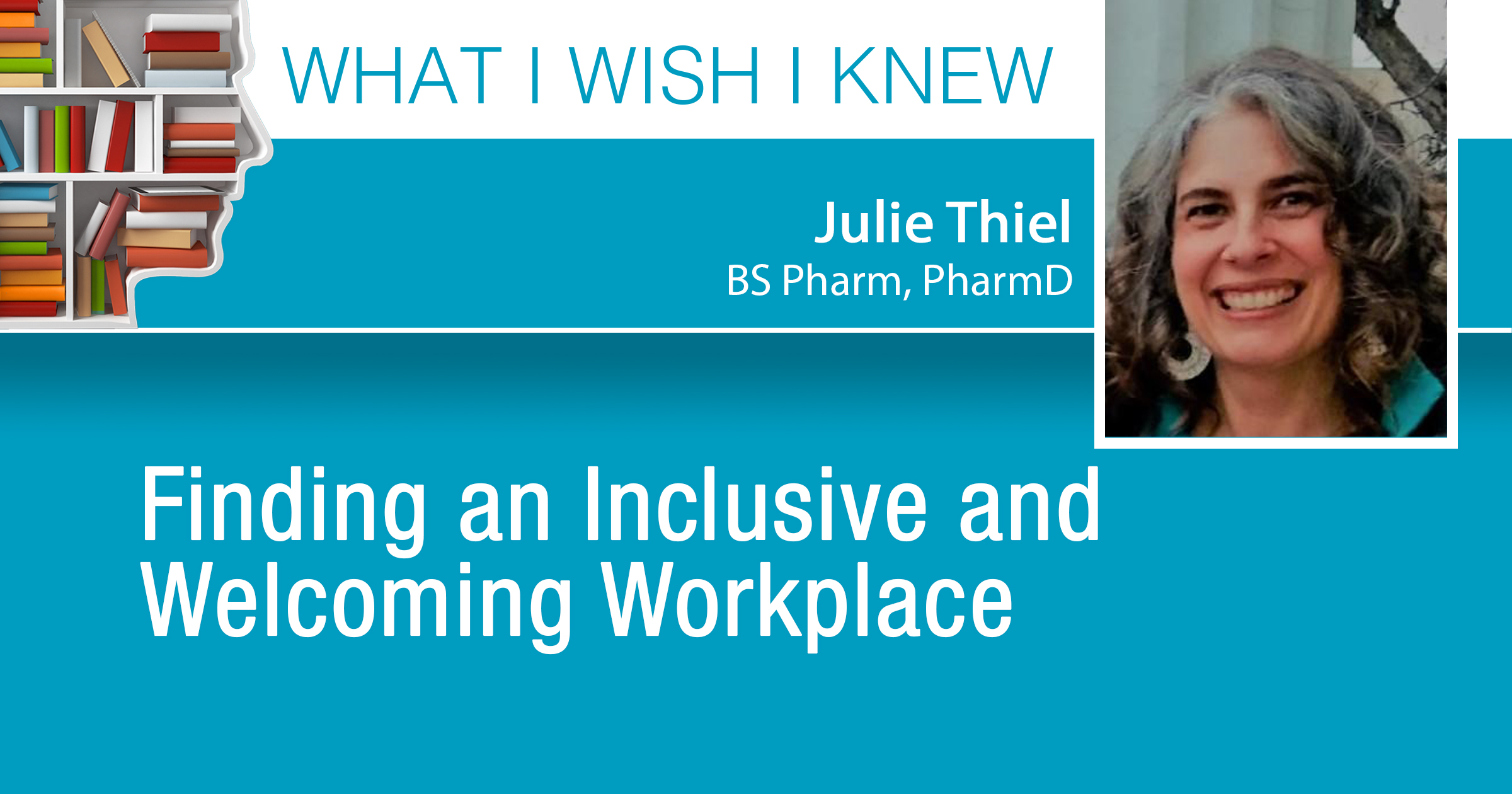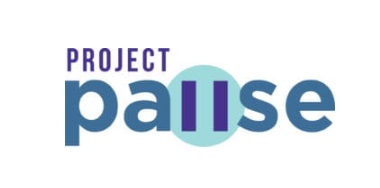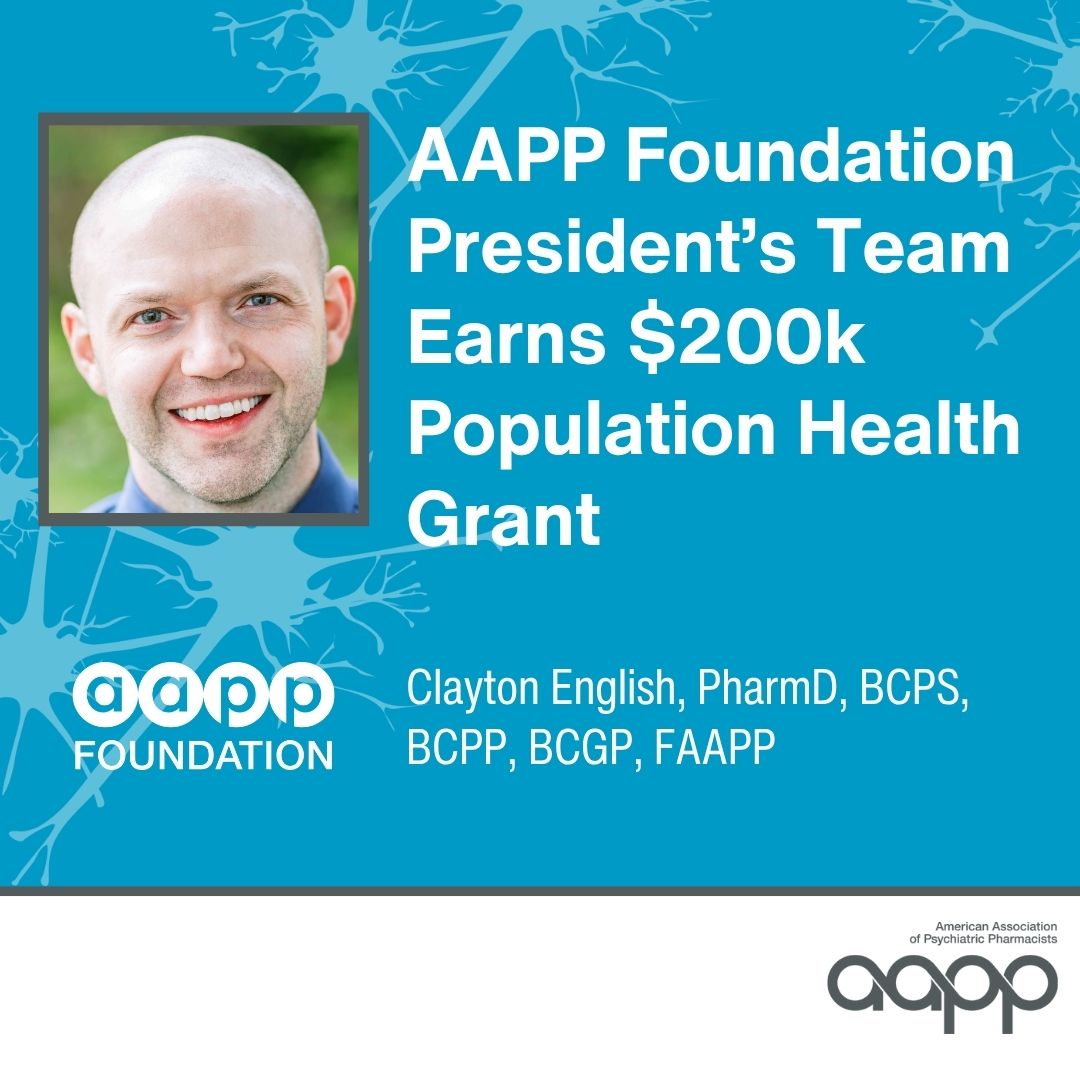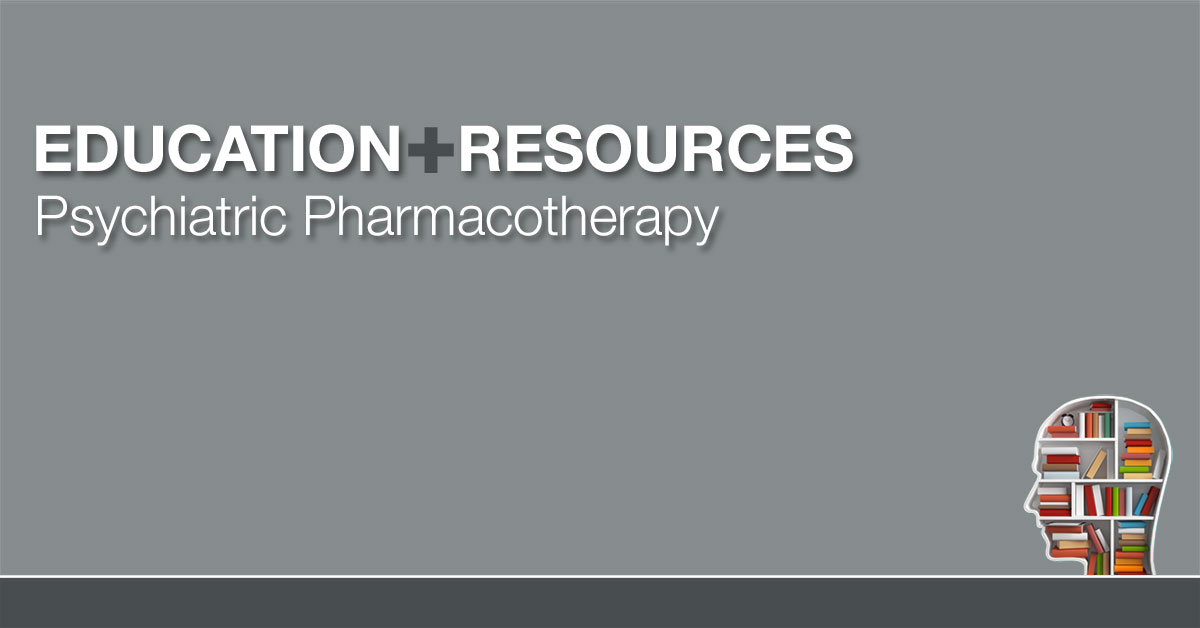News and Insights for Psychiatric Pharmacists
Free Toolkit on Pain Management Pearls Now Available
Glean information and insights from AAPP’s toolkit on Pain Management Pearls for Patients with Chronic Pain or Opioid Use Disorder, our newest valuable resource.
Foundation Annual Campaign Post #3 - $75,000 Goal!
Support the next generation of leaders in psychiatric pharmacy. A $500/month donation funds Collegiate Chapter Impact Grants, which empower student pharmacists to grow as innovators, researchers, and advocates for mental health. Your investment can help shape the future. #AAPPFoundation #AdvancingPsychPharmacy
Final Days of American Pharmacist Month
In the final days of American #PhamacistMonth, we want to shout out all Board Certified Psychiatric Pharmacists! AAPP is proud to support aspiring BCPPs and to help BCPPs maintain their credentials.
What I Wish I Knew - Managing Personal Career Goals with Job Expectations: A Balancing Act
Dr. Megan Ehret, PharmD, MS, BCPP, explains how to balance your employment expectations with your personal career goals.
CMS Lifts Some Medicare Claims Holds
The Centers for Medicare and Medicaid Services (CMS) has directed Medicare Administrative Contractors to lift the hold currently in place on some claims with service dates occurring after Oct. 1. This includes telehealth claims that the agency “can confirm are definitively for behavioral and mental health services.” The agency says it will continue to temporarily hold claims for other telehealth services. Many pandemic-era telehealth flexibilities expired Oct. 1, including coverage for home-based and non-rural services. As a reminder, without congressional action to extend telehealth flexibilities, an in-person (i.e., not telehealth) visit is now required within six months prior to a patient receiving their first mental health telehealth service, along with an annual in-person visit requirement for established patients. CMS states it does not believe this requirement applies to beneficiaries who began receiving mental health telehealth services in their homes prior to Oct. 1, 2025. Statutory requirements also exempt telehealth services for someone with a diagnosis of SUD or co-occurring conditions from this requirement. CMS has published a Telehealth Factsheet, along with a Telehealth FAQ updated Oct. 15, 2025.
Journal Club
The 3/6/25 #JournalClub (1/2) presented "Single-Dose Psilocybin for Depression With Severe Treatment Resistance: An Open-Label Trial." The recording is available free to all AAPP members.
Strategies to Improve PrEP Adherence in People Who Use Drugs: A Systematic Review
The first systematic review to examine PrEP interventions among PWUD and identify strategies to enhance adherence.
AAPP Foundation Funds Up to 2 DEI Travel Grants to AAPP 2026
Are you facing challenges in funding your attendance at AAPP Annual Meetings? Consider applying for a DEI Travel Grant to AAPP 2026 in Seattle, Washington, April 19-22. Two awards offering up to $2500 each may be awarded. Consideration is given to the DEI work being conducted by the applicant, financial need, as well as quality of application. Check out the grant criteria and application process.
Advocating for the Evidence: Stimulants for ADHD
AAPP supports access to behavioral interventions, including parent training in behavior management, and stimulant treatment for youth with functionally impairing symptoms of attention-deficit/hyperactivity disorder (ADHD) as the most effective treatment for ADHD given their associated improvement in academic, social, and developmental functioning. Psychiatric pharmacists are encouraged to use this policy brief to support your own advocacy for this gold-standard treatment.
AAPP 2026-2027 Volunteer Opportunities for Resident and Pharmacist Members
This is your chance to get involved with the important work being done by AAPP committees and editorial boards. Through December 1, AAPP will be accepting applications for volunteer openings anticipated for the 2026-2027 committee year which starts March/April. Selections will be made and announced no later than January 2026 with a volunteer start date to be announced for March/April 2026. Apply today!
Corollary Discharge Dysfunction to Inner Speech and its Relationship to Auditory Verbal Hallucinations in Patients with Schizophrenia Spectrum Disorders
This study provides empirical support for the theory that AVH are related to abnormalities in the normative suppressive mechanisms associated with inner speech.
Anti-science bills hit statehouses, stripping away public health protections built over a century
An Associated Press investigation found that the wave of legislation has cropped up in most states, pushed by people with close ties to Health and Human Services Secretary Robert F. Kennedy Jr.
Cannabis Use Among Individuals With Psychosis After State-Level Commercial Cannabis Legalization
In this study, individuals with psychosis reported a large increase in current cannabis use following legalization and commercialization of cannabis in their state, and by larger amounts than previously reported estimates of the general population.
Alcohol Consumption Per Capita and Suicide
An increase in APC was associated with an increase in the suicide mortality rate at the population level and that the association was similar across sexes.
Alcohol use and risk of dementia in diverse populations: evidence from cohort, case–control and Mendelian randomisation approaches
These findings provide evidence for a relationship between all types of alcohol use and increased dementia risk.
AAPP Approved as a Recertification Provider for Pain Specialty (BCPMP)
BPS has announced the approval of AAPP as a professional development program (PDP) providers for the contract period beginning January 1, 2026 through December 31, 2030. AAPP will deliver dually certified educational activities for pharmacists certified in pain and psychiatry in partnership with the American Pharmacists Association (APhA), the Society of Pain and Palliative Care Pharmacists (SPPCP), and the American Society of Consultant Pharmacists (ASCP).
Meet the Newly Elected AAPP Board Members
The AAPP membership has elected three officers to serve on the 2026-2028 Board of Directors. Assuming their offices effective July 1, 2026, will be Drs. Austin Campbell, Julie Cunningham and Bethany DiPaula. These 3 new members will join Drs. Jolene Bostwick, Kelly Gable, Suzanne Harris and Danielle Stutzman on the Board for 2026-2027.
Global status report on neurology
The Global status report on neurology presents the first comprehensive global assessment of the public health response to neurological disorders under the Intersectoral global action plan on epilepsy and other neurological disorders 2022–31 (IGAP).
APA Overhauls Delirium Guideline for the First Time in 25 Years
The American Psychiatric Association has released an updated guideline for preventing and treating delirium. The previous guideline was published in 1999 with a minor revision in 2010. The updated guideline includes steps aimed at prevention and has a broader scope, targeting not only psychiatrists but also specialists in internal medicine, family medicine, and critical care nursing.
Free Toolkit on Pain Management Pearls Now Available
Thanks to member authors Julie Cunningham and Tanya Uritsky, AAPP is pleased to offer this toolkit on Pain Management Pearls for Patients with Chronic Pain or Opioid Use Disorder. The toolkit includes general clinical pearls, information on managing pain and co-occurring MOUD, perinatal pain in patients prescribed MOUD, postpartum opioid-induced respiratory events, and discussion of chronic pain management with a focus on buprenorphine.
Looking Back, Looking Ahead: The Power of Progress and Giving
As we step into the final stretch of the year, there’s a natural tendency to reflect on what has been accomplished over the past year, and to set goals for the year to come. Very soon, we’ll be in the heat of the holidays and the season of giving. It’s a time not just for celebration, but also for purpose.
Recognize Your Care Team
During #PharmacistMonth, let’s take a moment to celebrate all the incredible individuals who support psych pharmacists! Tag a member of your care team that you appreciate. #APhM2025 #psychpharmacy
AAPP Foundation Awards Nearly $15,000 in Defining the Future Grant Awards
The AAPP Foundation is pleased to announce the recipients of the 11th annual Defining the Future Research Grant Awards: Saira Pacheco, PharmD Student, Western University of Health Sciences; Seo Young Park, PharmD, PGY2 Resident, Montefiore Nyack Hospital; Jack Smith, PharmD Student, Wayne State University; Amber Tran, PharmD, PGY2 Resident, Laureate Psychiatric Clinic and Hospital; Mina Wolfe, PharmD, Consultant Pharmacist, North Carolina Association of Pharmacists. Read the full press release!
Advanced Track Psychotropic Long-Acting Injectable Program
Ready to lead the way in psychotropic LAI implementation? This 6-part educational series equips learners with advanced knowledge across clinical care, patient engagement, leadership advocacy, and financial sustainability. #LAIs #psychiatricpharmacy #CE
Foundation Annual Campaign Post #2 - $75,000 Goal!
Your support makes a measurable difference. A $1,000/month donation funds research that helps integrate psychiatric pharmacists into mental health care teams—improving outcomes for patients and the profession. Now is the time to invest in your field. #AAPPFoundation #AdvancingPsychPharmacy
Advocating Stimulants for ADHD – A Gold Standard Treatment
AAPP supports access to behavioral interventions and stimulant treatment for youth with functionally impairing symptoms of ADHD. Use AAPP’s policy brief to advocate for this gold-standard treatment.
October President’s Letter: Collaborating to Advance Pharmacy
 Happy Pharmacists Month-a month where we celebrate you and your impact on patients you serve! This month, I had the opportunity to represent AAPP and contribute to my first Joint Commission of Pharmacy Practitioners meeting.
Happy Pharmacists Month-a month where we celebrate you and your impact on patients you serve! This month, I had the opportunity to represent AAPP and contribute to my first Joint Commission of Pharmacy Practitioners meeting.
CMS Clarifies In-person Requirement for Mental Health Telehealth Services
Last week the Centers for Medicare and Medicaid Services (CMS) published an updated Telehealth FAQ for Calendar Year 2025. Without congressional action to extend telehealth flexibilities, an in-person, non-telehealth visit within six months prior to their first mental health telehealth service with an annual in-person requirement for established patients is required.
Practice Settings
At VA Healthcare Systems, psychiatric pharmacists manage medications for military Veterans in outpatient clinics. Under a broad scope of practice (including controlled substance prescribing), psychiatric pharmacists meet one-on-one with Veterans to design personalized treatment plans that optimize symptom control while minimizing side effects.
Advocating for the Evidence: SSRIs and Pregnancy
AAPP supports the continued availability of SSRIs as an option for treatment of moderate to severe symptoms of perinatal depression and anxiety. Any concerns regarding risks of antidepressant use in this population must be weighed against the risks associated with suboptimal management of psychiatric symptoms. Psychiatric pharmacists are encouraged to use this policy brief to support your own advocacy for this gold-standard treatment.
Trevor project study shows LGBTQ+ youth mental health is getting worse
Young LGBTQ+ people are experiencing worse mental health symptoms, more exposure to conversion therapy, and less access to mental health care, according to an interim report from the Trevor Project.
Pharmacy profession unites to publish guiding principles for state policy on pharmacy personnel–administered vaccines
Guiding principles for state policy on pharmacy personnel-administered vaccines issued by pharmacy vaccine workgroup.
Layoffs at SAMHSA and Other Federal Agencies
AAPP shares NAMI’s concerns with additional layoffs at SAMHSA and other federal agencies which run programs helping people with mental health conditions. These cuts, coupled with earlier rounds of layoffs and retirements, mean that SAMHSA has reportedly lost nearly two-thirds of its workforce since January. AAPP agrees that such drastic staffing changes threaten to disrupt the availability of the lifesaving resources managed through these agencies.
NAMI Resource: How a 2025 Federal Government Shutdown Will Impact Health and Social Programs
NAMI’s Federal Shutdown Guide outlines what is known about operations for federal health care and social services that people with mental illness rely on. The guide will be updated as new or additional information becomes available or a deal is reached to re-open the federal government.
AAPP Endorses Guiding Principles for State Policy on Pharmacy Personnel-Administered Vaccines
A pharmacy-based Vaccine Access Work Group, consisting of representatives from a diverse group of 13 organizations across pharmacy practice settings (including AAPP), jointly published guiding principles for state policy on pharmacy personnel–administered vaccines. This marks an unprecedented level of collaboration between pharmacy professionals, symbolizing a strong commitment from the field of pharmacy to national public health interests. In many states, the authority for pharmacists, pharmacy technicians, and pharmacy interns to administer vaccines is tied directly to recommendations from federal bodies such as the CDC, ACIP, and/or the FDA. As federal processes evolve, recommendations change, and advisory structures shift. Such references can create unintended legal and regulatory ambiguity, reduce flexibility, and delay access to newly authorized and existing vaccines. The core principles proposed in this document aim to address ambiguity in state policymaking regarding pharmacy personnel–administered vaccines, ultimately improving access to essential vaccinations for all Americans and providing guidance for structuring payment for pharmacist-provided services.
TNT PC-TEAM Fellowship (California)
The primary goal of the TNT PC-TEAM fellowship is to provide mentorship and teaching skills in the area of addiction medicine. Trainees will learn in both small and large group settings, with a focus on how to teach information and skills learned to providers in their region. The target audiences for the program are MDs, DOs, NPs and PAs. Learn more and apply by Oct. 31, 2025.
Dear Breast Cancer Oncology: Where is the Behavioral Health Care?
AAPP member Kelly Gable reflects on her personal breast cancer journey and advocates for change in a recent article published in the Journal of Patient Experience.
AAPP Foundation: Working Toward Our Biggest Year Yet with Your Help!
The AAPP Foundation has awarded over $70,000 in research grants and educational support in 2025! We need your support to reach our goal of raising $75,000 to continue these important programs. Help us shape the future of psychiatric pharmacy through these important projects with a donation today.
Barriers to opioid replacement therapy in pregnant women with opioid use disorder: a systematic review
Pregnant women with OUD face barriers including stigma, childcare demands, provider bias, training gaps, fragmented care, financial and insurance issues, and punitive policies.
Treatment and recovery from opioid use disorder: The role of pain severity in individuals with moderate to severe pain
Routine pain severity monitoring may provide valuable insight into patient trajectories and support more tailored treatment approaches in OUD.
DEA Agrees to Update Registration Process
Pharmacists in several states have recently gained the authority to prescribe for opioid use disorder (OUD). But outdated DEA registration processes were creating roadblocks to pharmacists. AAPP joined other pharmacy associations and states in reaching out, and DEA has responded and agreed to review and update its registration process to reflect pharmacists’ authority under state law. This means fewer barriers for pharmacists and better access to care for patients.
Upgrade to CPE Monitor Plus to Maximize Your CPE Experience
CPE Monitor Plus is an upgraded feature within the ACPE CPE Monitor system that provides you with a more robust and personalized way to manage your professional development. It allows you to access your comprehensive CPE transcript on demand, receive proactive notifications about your license renewal dates, and helps you see how your completed CPE activities align with your specific licensure requirements. The Plus plan is $12 a year.
Advanced Track Psychotropic Long-Acting Injectable Program
From inpatient strategies and complex case management to profitability and curriculum integration, this six-part program covers everything pharmacists need to lead with confidence in LAI care. #PatientCare #LAIs #psychiatricpharmacy #CE
Foundation Annual Campaign Post #1 - $75,000 Goal!
Advance your profession and help drive innovation in psychiatric pharmacy. Over the past year, the AAPP Foundation has awarded over $70,000 in grant funding to support impactful projects that demonstrate the value of psychiatric pharmacists. Help us keep this momentum going. Consider making a donation today. #AAPPFoundation #AdvancingPsychPharmacy
Advocating for Access to SSRIs in Pregnancy
AAPP supports the availability of SSRIs as treatment option for moderate to severe symptoms of perinatal depression and anxiety with appropriate weighing of all risks and benefits. Use AAPP’s policy brief to advocate for this gold-standard treatment.
Psychiatric Pharmacy Specialty Mock Exam for BCPP Candidates
Practice, practice, practice! The 150-question mock exam lets you test your knowledge, pacing, and endurance before sitting for the BCPP certification exam. #BCPP #AAPP #examprep #psychpharmacy
Happy American Pharmacists Month!
Happy American Pharmacists Month! Tag a psych pharmacist colleague that you want to celebrate. #psychpharm #APhM2025
Journal Club
The 3/6/25 #JournalClub (2/2) presented "Masked Taper With Behavioral Intervention for Discontinuation of Benzodiazepine Receptor Agonists: A Randomized Clinical Trial." The recording is available free to all AAPP members.
Psychedelic Use Increased 30% since 2021
About a third of users say they use it to treat mental or physical health issues.
Advocating for the Evidence: Mood Stabilizers for Bipolar Disorder
AAPP supports access to mood stabilizers, including lithium, for the treatment of bipolar disorder. Psychiatric pharmacists are encouraged to use this policy brief to support your own advocacy for this gold-standard treatment.
Psychiatric Pharmacy Essentials
This free collection of essentials provides resources, references, and clinical pearls for practitioners beginning to practice in psychiatry.
Navigating the Peer Review Process: A Guide for New Reviewers
Improve your peer review skills! Discover the components to evaluate, the role of the peer reviewer, the skills necessary to critically evaluate a manuscript, and how to provide feedback to authors and journal editors.
Goals for Opioid Use Disorder Medications — Protection, Remission, and Recovery
There has been confusion and controversy about the appropriate clinical goals for the use of medications such as methadone and buprenorphine. A key question has been when, if ever, to taper and discontinue medication.
Low-Threshold Buprenorphine in Non-Traditional Settings: A Scoping Review
This review aims to describe approaches taken by programs in non-clinical settings by identifying key components of delivery models, implementation barriers and facilitators, and outcomes.
AHRQ Medications for Opioid Use Disorder Playbook
A practical guide for providing medications for opioid use disorder (MOUD) and immediate care for patients with opioid use disorder (OUD) in primary care and other ambulatory care settings.
What I Wish I Knew - Talking the Talk: Discussing Illicit or Non-Prescription Drug Use with Patients
Dr. Raeschell Williams, PharmD, BCPS, BCPP, explains how to discuss illicit or non-prescription drug use with patients.
Advocating for Mood Stabilizers for Bipolar Disorder – A Gold Standard Treatment
AAPP supports access to mood stabilizers, including lithium, for the treatment of bipolar disorder. Use AAPP’s policy brief to support your own advocacy for this gold-standard treatment (member only resource).
Advanced LAI Training Program is Available!
Whether you're improving transitions of care, managing special populations, or building a profitable clinic - this program has you covered! Register now and gain up to 9 CE credits by completing modules of interest. #LAI
Psychiatric Pharmacy Specialty Mock Exam for BCPP Candidates
Studying for the BCPP exam? Test your knowledge with our 150-question mock exam! #psychpharmacy #BCPP #AAPP #BPS #boardcertification
Advanced Track Psychotropic Long-Acting Injectable Program
Join us as we unravel the complexities of LAIs! Our Advanced LAI Training Program will equip participants with the tools necessary to lead, innovate, and advance LAI patient care and clinic management. #PatientCare #LAIs #psychiatricpharmacy #CE
Pharmacy careers change lives
Pharmacy careers change lives. Learn if a job as a pharmacist is right for you and how you can help people live better, healthier lives. #Pharmacy #PsychPharm
Improving medication-related outcomes for patients with psychiatric and neurologic disorders: Value of psychiatric pharmacists as part of the health care team
There is a shortage of psychiatric pharmacy providers, and patients have unmet needs that can be filled by these individuals. AAPP's position paper describes the expertise and skills of psychiatric pharmacists and the associated positive outcomes for patients with these disorders. This paper also outlines barriers to the provision of services by psychiatric pharmacists and presents action items aimed at effecting change. Read this position paper to learn more about the value of psychiatric pharmacists as part of the health care team. We hope you will consider exploring psychiatric pharmacy for your career.
CMMI Releases Report on Maternal Opioid Misuse (MOM) Model
The CMS Innovation Center recently released evaluation reports and publications related to the MOM Model, a patient-centered service delivery model that aims to improve the quality of care for pregnant and postpartum Medicaid beneficiaries with opioid use disorder (OUD) and their infants. The reports acknowledge that MOM Model beneficiaries faced complex and overlapping health, behavioral and social challenges that demanded flexible, trauma-informed care. The reports cite promising practices emerging that demonstrate how states can advance integrated care for pregnant and postpartum individuals with opioid use disorder in Medicaid by aligning services with patients’ full range of medical, behavioral and social needs.
Advocating for the Evidence: Antipsychotics for Schizophrenia and other Psychotic Disorders
AAPP supports the use of antipsychotics as the first line treatment for acute and maintenance treatment of schizophrenia, with individual agent and route of administration selected based on patient-specific factors. Psychiatric pharmacists are encouraged to use this policy brief to support your own advocacy for this gold-standard treatment.
Do You Oversee a Residency or Fellowship?
It is time to update the directory of Psychiatric Pharmacy Residency Programs. We want your help to self-identify if you participate in residencies. By adding your information to the site, you can raise the visibility of your program among those with a strong interest in psychiatric pharmacy. NEW fields allow you to include your recruitment open-house information.
Member News: October 2025
The important work of AAPP member Mark Schneiderhan is highlighted in this article as are the funding cuts that will reduce access to these services and impact the training of new clinicians.
Brianna Englett was promoted to Director of Pharmacy for Cardinal Health.
Megan Ehret completed the AACP Academic Leadership Fellows Program (AFLP).
MOUD and the Role of Pharmacists in Treating and Engaging Patients
AAPP members Michelle Geier, PharmD, APh, BCPP, FAAPP; Michelle Colvard, PharmD, BCPP; and Rebecca Hoss, PharmD, BCPP represented AAPP and psychiatric pharmacy in presenting a session on the important role of psychiatric pharmacists in treating and engaging patients with MOUD. Speakers detailed their practice models and the significant impact they make as psychiatric pharmacists in various settings including in public health, an outpatient SUD clinic, and a hospital system. We appreciate their contributions and advocacy on behalf of psychiatric pharmacy.
AAPP Participates in September JCPP Meeting
The Joint Commission of Pharmacy Practitioners (JCPP), a forum of thirteen national pharmacy organizations that addresses topics impacting the profession of pharmacy, met on September 30, 2025, in Alexandria, Virginia, for its annual fall meeting. During this meeting, JCPP focused on building consensus to advance pharmacists’ patient care roles and tackle evolving workforce, business, and health plan challenges in pharmacy. The meeting agenda included discussion of:
SUD Scoop Series
Each 30-minute webinar offers a dynamic, peer-driven discussion focused on complex substance use disorder cases. Free to AAPP members! Click the link to learn more and register.
ASAM Provides Benzodiazepine Tapering Tools
ASAM has expanded its benzodiazepine tapering resource suite to support clinicians and patients.
October is American Pharmacists Month!
There are over 700,000 pharmacists, technicians, and student pharmacists, and each one is dedicated to improving public health by providing vital services and keeping their communities safe. We are so proud of our members, and this month we celebrate you!
Advocating for Antipsychotics for Schizophrenia and other Psychotic Disorders – A Gold Standard Treatment
AAPP supports the use of antipsychotics as the first line treatment for acute and maintenance treatment of schizophrenia. Use AAPP’s policy brief to support your own advocacy for this gold-standard treatment (member only resource).
AAPP Pharmacist Toolkit: Agitation and Aggression in Practice
This toolkit provides a resource for recognizing, understanding, and managing episodes of agitation and forms of aggression encountered in clinical practice.
FDA Initiates Label Change for Acetaminophen Citing Autism Risk
The U.S. Food and Drug Administration initiated the process for a label change for acetaminophen (Tylenol and similar products) to reflect evidence suggesting that the use of acetaminophen by pregnant women may be associated with an increased risk of neurological conditions such as autism and ADHD in children. The agency also issued a related letter alerting physicians nationwide.
Advocating for the Evidence: Antidepressants for Youth with Depression
AAPP supports access to antidepressants for youth with moderate to severe symptoms of a depressive, anxiety, or obsessive-compulsive-based disorder and reconsideration of the boxed warning on new-onset suicidal thoughts/behaviors given its many unintended consequences and role in accelerating stigma. Psychiatric pharmacists are encouraged to use this policy brief to support your own advocacy for this gold-standard treatment.
Clozapine Education Grant Leads to HealthWell Foundation Feature on Psychiatric Pharmacy
The value and impact of psychiatric pharmacists takes center stage in this HealthWell Foundation feature article.
Clozapine Education Grant Leads to HealthWell Foundation Feature on Psychiatric Pharmacy
In early November, AAPP will be launching a 5.5 hour educational series on clozapine. Grant funded in partnership with the Schizophrenia & Psychosis Alliance, this program seeks to educate clinicians and expand the use of clozapine. News of this grant has also promoted the role of psychiatric pharmacists as seen in this article on HealthWell Foundation’s website. HealthWell is a non-profit that provides financial assistance for insurance and medications for illnesses such as schizophrenia. A special thanks for AAPP President Jolene Bostwick for so eloquently describing the value and impact of psychiatric pharmacists.
MOUD and the Role of Pharmacists in Treating and Engaging Patients
AAPP members Michelle Geier, PharmD, APh, BCPP, FAAPP; Michelle Colvard, PharmD, BCPP; and Rebecca Hoss, PharmD, BCPP represented AAPP and psychiatric pharmacy in presenting a session on the important role of psychiatric pharmacists in treating and engaging patients with MOUD. Speakers detailed their practice models and the significant impact they make as psychiatric pharmacists in various settings including in public health, an outpatient SUD clinic, and a hospital system. We appreciate their contributions and advocacy on behalf of psychiatric pharmacy.
Persisting high rates of mental health disorders in patients in opioid agonist treatment—Results from a 6-year longitudinal study
Persisting high rates of mental health disorders in patients in opioid agonist treatment—Results from a 6-year longitudinal study
Use of stigmatizing language related to substance use disorders in media: A systematic review
Use of stigmatizing language related to substance use disorders in media: A systematic review
Medications for Opioid Use Disorder in County Jails — Outcomes after Release
Medications for Opioid Use Disorder in County Jails — Outcomes after Release
Contingency Management for Stimulant Use Disorder and Association With Mortality: A Cohort Study
This study provides the first evidence that CM use in real-world health care settings is associated with reduced risk of mortality.
What I Wish I Knew: I’m Anxious About Taking Anxiety Meds, So What About OTC Products?
Richard J. Silvia, PharmD, BCPP discusses ways to communicate risks vs benefits of OTCs in patients with anxiety.
Advocating for Antidepressants for Youth with Depression
AAPP supports access to antidepressants for youth with moderate to severe symptoms of depression, anxiety, or OCD and reconsideration of the suicide boxed warning. Use AAPP’s policy brief to advocate for this gold-standard treatment.
AAPP New Practitioner Hub
Access valuable psychiatric treatment guideline and clinical pearl resources at AAPP
Collaborative Practice
Collaborative practice agreements permit clinical pharmacists to provide expanded healthcare services to patients. Learn more in this 11-minute video.
Advocating for Public Health and Psychiatry: Spotlight on the Evidence
Our newly launched, member-protected Policy Statements and Briefs webpage details AAPP’s stance on over 35 topics surrounding access to care, gold standard treatments, and needed policies to support access to care and psychiatric pharmacists. These policy statements are further supported by our advocacy fact sheets and 7 policy briefs, a new set of resources authored by our Rapid Action Task Force. Please check out these new resources and provide your feedback directly from the webpage.
Senate Reauthorizes the SUPPORT Act
Last week, the Senate passed a reauthorization of the SUPPORT Act in a rare show of bipartisanship. The SUPPORT Act reauthorizes key prevention, treatment and recovery programs for patients with substance use disorder, including programs to support the behavioral health workforce. Among the reauthorized programs are the Substance Use Disorder Treatment and Recovery (STAR) Loan Repayment Program, helping bolster the workforce by providing loan repayment opportunities for SUD treatment and recovery providers in the face of severe workforce shortages — as well as critical recovery efforts through the Building Communities of Recovery (BCOR) program and comprehensive opioid recovery centers. The bill now heads to President Trump’s desk for his signature.
Initiation and Dose of Methadone Monotherapy vs Combination Therapy, 2015 to 2023
Initiation and Dose of Methadone Monotherapy vs Combination Therapy, 2015 to 2023
Retention rates and cost-effectiveness of telehealth vs. in-person buprenorphine treatment for opioid use disorder (OUD)
Retention rates and cost-effectiveness of telehealth vs. in-person buprenorphine treatment for opioid use disorder (OUD)
AAPP Announces 2026-2028 Election Results
AAPP has elected three members to the 2026-2028 Board of Directors. Congratulations to Drs. Cunningham, Campbell, and DiPaula!
New federal data on deaths by suicide
In 2023, the overall suicide rate in the U.S. was about 14 per 100,000 people, according to new analysis in the CDC’s Morbidity and Mortality Weekly Report. That’s consistent with the past five years or so, but there were changes within different racial groups. Suicide rates among Black people in the U.S. rose 25% from 2018 to 2023, while rates among Hispanic people rose 10%.
National Academies Proceedings of a Workshop - Unraveling the Neurobiology of Empathy and Compassion: Implications for Treatments for Brain Disorders and Human Well-Being
This document features high-level key takeaways from the May 2025 workshop.
AAPP Pharmacist Toolkit: Methamphetamine Use Disorder
AAPP’s free resource document on Methamphetamine Use Disorder provides information on screening, diagnosis, intoxication, withdrawal, treatment, co-occurring psychiatric disorders, special populations, and harm reduction strategies.
Early Practitioner Award Nominations Open
Calling all psychiatric pharmacist rising stars. Nominate yourself or others for the AAPP Early Practitioner Award designed to recognizes future leaders within AAPP and Psychiatric Pharmacy. Nominations close 10/1/2025.
Treatment of Postpartum Depression: Focus on the Role and Clinical Considerations for Neuroactive Steroids [Webinar]
During this complimentary, grant-funded webinar, participants will learn about the potential benefits and drawbacks of available PPD treatments – including newer NAS medications. Register today and earn 1 hour of ACPE credit upon webinar completion.
Physician Fee Schedule Comments Submitted by AAPP
AAPP submitted comments on CMS’s CY 2026 Physician Fee Schedule Proposed Rule, encouraging the agency to strengthen behavioral health integration in primary care, expand telehealth flexibilities, and proceed cautiously with proposed changes to the 340B program.
Advocacy Tools that Lead with the Evidence
AAPP’s new policy statements and briefs are rooted in evidence and AAPP’s mission. See how you can use them to advocate.
DEI Travel Grant to AAPP 2026 Now Open for Applications
AAPP Foundation and the AAPP DEI Committee are pleased to announce the 2026 DEI Travel Grant to the Annual Meeting. The DEI Travel Grant application window is open September 15- November 14, 2025. The goal of this grant is to support up to 2 practicing pharmacists and residents who are:
CDC Launches Study on Vaccine-Autism Link Amid Ongoing Measles Outbreak
AAPP Board member Danielle Stutzman, PharmD, BCPP, represented psychiatric pharmacy in expressing concerns about study's potential to perpetuate stigmatization of vaccines and, in particular, ASD.
AAPP Benzodiazepine Toolkit Updated
The benzodiazepine toolkit is freshly edited with up-to-date statistics and references. Additionally, content was harmonized with the American Society of Addiction Medicine Joint Clinical Practice Guideline on Benzodiazepine Tapering: Considerations when Benzodiazepine Risks Outweigh Benefits.
Developing Effective Test-Taking Skills
Exams can be daunting. Let us help! Register for the Developing Effective Test-Taking Skills webinar to sharpen your skills. #BCPP #examprep #psychpharmacy #AAPP
Leading with the Evidence: September President Letter

Unprecedented, turbulent, unparalleled. These are all adjectives that are used to describe the challenges impacting public health and psychiatry daily. Watching the attacks on evidence-based care unfold since early 2025, AAPP has been engaged in efforts to state our core advocacy beliefs with the goal to:
Physician Fee Schedule Comments Submitted by AAPP
AAPP submitted comments on CMS’s CY 2026 Physician Fee Schedule Proposed Rule, encouraging the agency to strengthen behavioral health integration in primary care, expand telehealth flexibilities, and proceed cautiously with proposed changes to the 340B program. AAPP also responded to an embedded request for information on prescription drug monitoring programs (PDMP) requirements and as always, took the opportunity to encourage CMS to recognize psychiatric pharmacists as qualified health care professionals as well as create payment pathways for pharmacist-provided comprehensive medication management.
OIG Issues Report on Timely Suicide-related Follow-up Care
On Sept. 4, the Office of the Inspector General issued a report finding that half of the children who had been seen for suicidal thoughts or behaviors did not receive any follow-up care in the week after treatment. The study examined nearly 225,000 children 10-17 who were enrolled in Medicaid and had been hospitalized or visited emergency departments.
SAMHSA Releases Strategic Priorities
On Sept. 10, the Substance Abuse and Mental Health Services Administration (SAMHSA) released its strategic priorities, its work going forward and alignment with Make America Healthy Again and other administration priorities. The executive summary says SAMHSA’s mission remains focused on treating mental illness, preventing addiction, fostering recovery and improving access to care for all Americans.
What I Wish I Knew - Considerations for Creating a LGBTQIA+ Friendly Health Care Environment
Carolanne Wartman, PharmD, BCPS, BCPP (she/her) discussing asking, advocating, and creating inclusive environments for LGBTQIA+ patients.
Impact of Social Determinants of Health on Psychotropic LAI Access and Administration [Webinar]
During this complimentary, grant-funded webinar, participants will gain insight into the barriers to effective psychotropic LAI use and explore current research. Register today and earn 1 hour of ACPE credit upon webinar completion.
Mental Health in Primary Care
Approximately 60% of depression is treated in the primary care setting. Psychiatric pharmacists can utilize their knowledge and training to assist primary care providers in treating mental illness. Watch this video to learn more.
Journal Club
The 10/31/24 #JournalClub article 1 presented "Ketamine for treatment-resistant major depressive disorder: Double-blind active-controlled crossover study." The recording is available free to all AAPP members.
AAPP Pharmacist Toolkit: Xylazine
AAPP's pharmacist toolkit on Xylazine is intended to highlight both the evidence base available as well as strategies of clinical decision making used by expert clinicians.
Share Your Story for “We’re Your Pharmacist” National Campaign
AAPP is a proud supporter of the national We're Your Pharmacist campaign led by ASHP. Other health care providers rely on your specialized knowledge and expertise to achieve the best patient outcomes. Help to show how far reaching the work of a psychiatric pharmacist is by sharing your unique story.
Implementation of a Statewide Fentanyl Possession Law and Opioid-Related Overdose Deaths
A serial cross-sectional study.
Neurological Injury and Outcomes in Fentanyl-related Cardiac Arrest
Information about the impact of fentanyl-related overdose in neurological outcomes after cardiac arrest (CA) compared with other etiologies of CA is limited.
Oral methadone versus sublingual buprenorphine for the treatment of acute opioid withdrawal
A triple-blind, double-dummy, randomized control trial.
Legal Action Center Releases Guide for SUD Programs
In response to last winter’s decision by the Department of Homeland Security to allow immigration enforcement actions in health care settings and other sensitive locations, the Legal Action Center has released a guide substance use disorder (SUD) treatment programs can reference for responding to such actions. The guide “highlights the particular legal and practical issues for programs covered by the federal privacy law for SUD treatment records.”
AHRQ Study: Trends in Attention Deficit Hyperactivity Disorder Medication Misuse
Click the link for more information!
NAM Workshop Briefing: Advancing Health Care Professional Education and Training in Diagnostic Excellence
Click the link for more information!
Study: Lithium loss ignites Alzheimer’s, but lithium compound can reverse disease in mice
Click link for more information!
SAMHSA Releases Behavioral Health Workforce Self-Care Fact Sheet
Click link for more information!
National Academies Consensus Study Report
Exploring Military Exposures and Mental, Behavioral, and Neurologic Health Outcomes Among Post-9/11 Veterans
Managing Mood Stabilizers in Renal and Hepatic Disease
A highlight on Shadi Doroudgar's AAPP 2025 Annual Meeting session!
Member News: September 2025
Emma Palmer, PharmD, BCPS, BCPP, FAAPP, was promoted to Clinical Professor at UC James L. Winkle College of Pharmacy.
Past President Michelle Geier, PharmD, APh, BCPP, FAAPP, has been confirmed as a committee member for the update of the American Society of Addiction Medicine (ASAM)’s National Practice Guideline for the Treatment of Opioid Use Disorder.
Leigh Gillies, PharmD, BCPP, started a new position at the University of Louisville Specialty Pharmacy.
Addressing Threats to Pharmacist Provision of Mental Health and Substance Use Disorder Services
This paper outlines four key issues along with considerations to ensure pharmacists are part of the solution moving forward.
Government Accountability Office Issues Behavioral Health Report
The U.S. Government Accountability Office recently released Behavioral Health: Federal Activities to Support Crisis Response Services, reviewing how states use resources from the Substance Abuse and Mental Health Services Administration to enhance the 988 Suicide & Crisis Lifeline, provide mobile crisis response units, expand crisis response staff and improve access to services in remote areas. The report is congressionally mandated by the Consolidated Appropriations Act of 2023.
Final Month to Submit Award Applications and Fellow Applications Due in 3 Weeks
AAPP is accepting applications for 4 membership recognition awards. Applications are accepted through October 1.
AAPP Announces Slate for 2026-2028 Board of Directors Election
AAPP Active members will have the opportunity to select one President-Elect candidate and two Member at Large candidates through an online voting process starting September 8.
Developing Effective Test-Taking Skills
Planning to sit for the BCPP exam? We've got resources! #BCPP #AAPP #examprep #psychpharmacy
ScienceDirect: Role of Ketamine in the Treatment of SUDs: A Systematic Review
Click the button to view the article recently published in the Journal of Substance Use and Addiction Treatment.
Addiction Policy Forum: Report: The Effects of Stigma on Naloxone Attitudes and Policy Endorsement
Click the button to learn more about this addiction policy forum.
Expert Panel Recommends Immediate Actions to Improve Pharmacy Access to Buprenorphine
AAPP members Bethany DiPaula and David Dadiomov represented psychiatric pharmacy on a panel working from June 2022 through September 2024 to form non-legislative recommendations to improve buprenorphine purchase. The study was recently published in Drug and Alcohol Dependence Reports.
Trends in Medical and Nonmedical Use of Prescription Stimulants Among US Adolescents
This study examined trends in medical and nonmedical prescription stimulant use patterns.
AAPP Signs onto Letter Raising Concerns About FDA’s Review of SSRIs and Pregnancy
114 organizations from across the United States signed onto the letter.
Feasibility and acceptability of a contingency management program for stimulant use disorder in a pallet shelter community for homeless-experienced veterans
This study piloted CM at a novel transitional pallet shelter community for HEVs and assessed the intervention's feasibility and acceptability.
CBO Affirms 10 Million Are Projected to Lose Coverage
On Aug. 11, the Congressional Budget Office (CBO) updated its estimate of the impact of the One Big Beautiful Bill Act, reaffirming that 10 million more people may become uninsured by 2034 (subscription required). The CBO cited the bill’s Medicaid work requirements, which go into effect at the end of 2026, as the primary factor driving coverage losses, leading to approximately 5.3 million individuals losing coverage.
Joint Commission of Pharmacy Practitioners (JCPP) Releases the 2025 Pharmacists’ Patient Care Process
The Joint Commission of Pharmacy Practitioners (JCPP) has released an updated version of the patient care process for pharmacists.
The Role and Impact of Indian Health Service Pharmacists in Public Health
The Indian Health Service (IHS), an agency within the Department of Health and Human Services, provides comprehensive health care to around 2.8 million American Indians and Alaska Natives (AI/AN) across 37 states belonging to 574 federally recognized tribes. The federal government established a special relationship with these tribes in 1787 to provide health services and raise their overall health status to the highest level.
What I Wish I Knew - Avoiding Overcommitment in Early Practice
Kaitlyn Q. Weslosky, PharmD, BCPP discusses why we overcommit, how to avoid overcommitment, and how to manage existing commitments in this What I Wish I Knew article. #WIWIK #residents #newpractitioners #psychpharmacy
Journal Club
The 10/31/24 #JournalClub article 2 presented "Efficacy and safety of the muscarinic receptor agonist KarXT (xanomeline-trospium) in schizophrenia (EMERGENT-2) in the USA." The recording is available free to all AAPP members.
Palliative Psychiatry for Severe, Persistent Mental Illness
Outside of conversations around suicide, disease progression, death, and dying are not commonly discussed in psychiatric practice. Palliative care for patients with mental illness is not typically considered beyond the context of terminal medical illness. While patients with SPMI (severe and persistent mental illness) would not routinely be considered terminally ill, many individuals who live with SPMI do not achieve adequate control of their symptoms and live with significant, distressing, and impairing problems.
Finding Help
Consider referring patients to Mental Health America (MHA) for mental health support. Explore the MHA website to view available resources!
Treatment Guidelines
This free list of treatment guidelines includes anxiety and related disorders, bipolar disorder, depression, medication-induced movement disorders, schizophrenia, seizure disorders, sleep-wake disorders, and substance use disorders.
AAPP Perspective: November 2023
As a growing specialty working in a profession where there are exponentially more and more patient care needs, the importance of attracting and training pharmacy students to the field has never been greater. AAPP members are critical in supporting this growth through precepting and educating students and/or by advising an AAPP Collegiate Chapter. This special edition of the AAPP Perspective demonstrates the impact of Collegiate Chapters and the numerous ways members are incorporating students into their practice, not only by educating them in psychiatric pharmacy but also in enhancing their understanding of those living with mental illness.
Supporting “We’re Your Pharmacist” Public Awareness Campaign
AAPP is pleased to be an official supporter of ASHP’s "We’re Your Pharmacist," a national public awareness campaign bringing visibility to pharmacist contributions to patient care and public health across practice settings and specialties. We are excited to be a part of this effort to share pharmacist stories, educate the public about critical pharmacist patient care roles, and inspire the next generation of pharmacy professionals. Be sure to like, share, and comment on our social media posts promoting this exciting campaign!
SAMHSA Offers Guidance on Harm Reduction
In a letter dated July 29, SAMHSA says it will no longer fund “harm reduction” activities it describes as incompatible with federal law and inconsistent with Administration priorities. The letter draws distinction between harm reduction and opioid overdose reversal medications and included guidance on what supplies and services will continue to be funded.
AAPP 2025 Preview: Salt Lake City – The Mountains are Calling!
The mountains are calling and AAPP is answering! For the second time in the 27-year history of AAPP’s Annual Meeting, attendees will head west to Salt Lake City (SLC), Utah. SLC was one of AAPP’s most popular destinations offering beautiful surroundings and numerous attractions. Couple that with a recently renovated international airport and a convenient, affordable light rail for transportation and SLC becomes a must-visit city for AAPP members and Annual Meeting attendees.
HHS Announces $100M in Pilot Funding Opportunity to Eliminate Hepatitis C
HHS announced a $100M pilot funding opportunity to prevent, test for, treat and cure Hepatitis C (HCV) in individuals with substance use disorder (SUD) and/or Serious Mental Illness (SMI). This program is particularly designed to support communities severely affected by homelessness and to gain insights on effective ways to identify patients, complete treatment, cure infections, and reduce reinfection by Hepatitis C (a liver disease caused by the Hepatitis C virus).
Member News: August 2025
Clayton English, PharmD, BCPS, BCPP, BCGP, FAAPP, is part of a team of SoP faculty researchers at the University of Washington School of Pharmacy that has been awarded a $200,000 Tier 3 pilot research grant from the UW Population Health Initiative. The team’s work aims to address the rise in opioid overdose deaths, increasingly driven by fentanyl.
AAPP Foundation President Elect’s Team Earns $200k Population Health Grant - Cloned
Long-time AAPP member and the current AAPP Foundation President-Elect, Clayton English, PharmD, BCPS, BCPP, BCGP, FAAPP, is part of a team of SoP faculty researchers at the University of Washington School of Pharmacy that has been awarded a $200,000 Tier 3 pilot research grant from the UW Population Health Initiative. The team’s work aims to address the rise in opioid overdose deaths, increasingly driven by fentanyl. This work is vital to public health. Help us congratulate Dr. English!
Journal Club
The 11/14/2024 #JournalClub (1 of 2) presented "Enhancing immigrant families' mental health through the promotion of structural and community-based support." The recording is available free to all AAPP members.
August Presidents Letter: Adding to the Outcomes Initiative Arsenal of Resources
For the past 4 years, AAPP has dedicated a tremendous amount of volunteer and staff resources to our Outcomes Initiative. The primary goal of the Outcomes Initiative is to increase demand for BCPPs by developing tools and by supporting research that demonstrates the value of BCPPs via evidence. As others begin to see the impact of BCPPs, they raise other complex questions about how they can be integrated and how many are needed.
Figure: Outcomes Initiative 1,000 Foot View
Unmasking the Complexity of Psychiatric Pharmacists Workload: An AAPP Study
Kelly C. Lee, PharmD, MAS, BCPP, FCCP, FASHP
Psychiatric pharmacists are crucial members of mental health care teams who work in a variety of practice settings, from hospitals to outpatient clinics, and perform a variety of tasks depending on their settings and the patients they serve. This diversity in their roles and services benefits patients and health care teams; however, it presents challenges when trying to measure and understand the workload of psychiatric pharmacists.
AAPP Study Seeks to Understand Burnout Among Psychiatric Pharmacists
Burnout is a well-documented occupational phenomenon that has emerged as a significant concern within the health care field. Characterized by three domains including emotional exhaustion (EE), depersonalization (DP), and reduced personal accomplishment (PA), burnout can have serious consequences on professional performance and personal well-being. Previous studies have identified prevalence rates and risk factors for burnout among other clinical pharmacy specialties, however none to date have evaluated burnout among psychiatric pharmacists. This study addresses this gap by evaluating burnout among Board-Certified Psychiatric Pharmacists (BCPPs) in the United States.
What I Wish I Knew - Finding an Inclusive and Welcoming Workplace
Julie Thiel, BS Pharm, PharmD shares questions to ask before accepting a job and what to do if you discover the job is not a culture fit.
Savvy Psychopharmacology - Valproic acid-induced hyperammonemic encephalopathy
Thanks to our partnership with Current Psychiatry (CP) published through Quadrant Healthcom Inc., another Savvy Psychopharmacology article was featured in the January 2020 edition of Current Psychiatry. The goal of this section is to present an evidence-based discussion to guide safe, effective prescribing of psychotropic medications. Eva Studer, MD, Tawny L. Smith, PharmD, BCPP, and Smitha Murthy, MD, authored this article on Valproic acid-induced hyperammonemic encephalopathy.
New executive order targets forced hospitalization of homeless
President Donald Trump has directed federal agencies to find ways to make it easier to forcibly hospitalize homeless people with mental illness and addiction for longer periods — an effort to fight what the administration calls “vagrancy” threatening the streets of U.S. cities.
A Spotlight on Integrating Contraceptive Care in Psychiatry at AAPP 2024
The AAPP Annual Meeting typically hosts presentations on topics related to psychiatric pharmacotherapy. Expert speakers are often BCPPs, psychiatrists, or advanced psychiatric providers. This year’s session on Contraceptive Care in Psychiatry was unique in that it provided members education on a non-psychiatric topic that is nonetheless frequently encountered in psychiatric practice environments. Given patients with mental illness often face barriers in accessing multiple treatment services, psychiatric pharmacists need to be knowledgeable on how to initiate contraception for patients and/or engage in discussions with patients and prescribers on how to confidently determine the optimal contraceptive option based on an individual’s treatment goals. Familiarity with the advantages and drawbacks of different contraceptive methods enables pharmacists to consider multiple factors when choosing the most suitable options for patients with psychiatric conditions.
SAMHSA Releases Annual National Survey on Drug Use and Health
The Substance Abuse and Mental Health Services Administration (SAMHSA) released the results of the 2024 National Survey on Drug Use and Health (NSDUH), which shows how people living in the United States reported their experiences with mental health conditions, substance use and pursuit of treatment. This year marks the first year since 2020 in which there are at least four years of comparable data for key NSDUH outcomes to enable reporting of trends.
FDA Panel Casts Doubt on Safety of SSRI Use in Pregnancy
On Monday, July 21, a 10-member panel headed by Marty Makary, MD, MPH, commissioner of the FDA convened to discuss the use of selective serotonin reuptake inhibitors (SSRIs) in pregnancy. Rather than recruiting a wide range of experts to discuss the best data available, the administration mainly invited clinicians and researchers who have a record of deep skepticism of antidepressants.
Project Pause Coalition Seeking Stories from Those Living with and Treating NPS
As a proud member of Project PAUSE (Psychoactive Appropriate Use for Safety and Effectiveness) — an ad hoc coalition of national patient and professional organizations collectively advocating on clinical regulatory and legislative issues in long-term care — we are working to help others understand Neuropsychiatric symptoms (NPS) of Alzheimer’s disease and related diseases (ADRD).
The coalition is looking for:
Trump Signs Executive Order Targeting Harm Reduction Services
On Thursday, July 24, the Trump Administration issued an executive order, Ending Crime and Disorder on America’s Streets, and corresponding fact sheet.
Psychiatric and Neurologic Pharmacy Fellowships
AAPP provides an up to date listing of Psychiatric and Neurologic Pharmacy Fellowships. Take a look at available opportunities!
November President’s Letter: Scaling Hills and Mountains at AAPP
As I prepare the President’s column for this edition of the AAPP Perspective, I am fresh out of a virtual fall retreat with the AAPP Board concentrated on our strategic plan progress. As a reminder, our current strategic plan was approved in late spring of 2021. It is regarded, by far, as the most aggressive strategic plan AAPP has ever adopted and launched us into an entirely new area of profession advocacy. With your help as volunteers and members and your amazing work in your day jobs, AAPP has been scaling these proverbial strategic plan hills and mountains with great passion ever since.
Updated Clozapine Toolkit Now Available!
The Clozapine in Practice toolkit has recently been updated to reflect the discontinuation of the REMS and to describe current information on monitoring guidelines. A special thanks to lead author Jonathan Leung and co-authors Robin Hieber, Jenna Stearns, and Greg Deardorff for their work to update this important toolkit.
BCPP Exam Prep: Psychiatric Pharmacy Specialty Mock Exam
The mock exam is composed of 150 questions based on the content domains and knowledge statements included in the BPS content outline. Register today and practice, practice, practice!
Journal Club
The 11/14/2024 #JournalClub (2 of 2) presented "Impact of sex on antidepressant discontinuation in groups of similar cytochrome P450 phenotypes." The recording is available free to all AAPP members.
EU to Ease Clozapine Monitoring Frequency After First Year
The European Medicines Agency’s (EMA) Pharmacovigilance Risk Assessment Committee has recommended easing routine blood count monitoring for patients on clozapine, citing new data that show that the risk for severe neutropenia and agranulocytosis declines significantly after the first year of treatment. Under the updated guidelines, monitoring for patients without a history of neutropenia can be reduced to once every 12 weeks after the first year, and to once annually after 2 years. In addition, absolute neutrophil count (ANC) will now be the sole parameter used for hematologic monitoring, replacing the previous requirement to also measure white blood cell count. The revised recommendations are supported by a joint expert statement from the European Clozapine Task Force, published this year, which called for changes to the monitoring protocol due to the very low incidence of late-onset agranulocytosis.
Optimizing Treatment With Aripiprazole Monohydrate: Pharmacokinetic Advantages of Long-Acting Injectable Formulations, A Consensus Panel Report
AAPP member Steve Saklad co-authored the study that highlights key considerations for optimizing the use of aripiprazole monohydrate LAIs in clinical practice to enhance treatment outcomes in patients with schizophrenia and BP-I. Funding was provided by funding by Otsuka Pharmaceuticals Europe Ltd & H. Lundbeck A/S.
New Learning Collaborative from SMI TTAC on July 15: Neurobiology and Recovery: Addressing Nicotine Use Among Individuals with Serious Mental Illness
We are cross promoting this event being held by the Smoking Cessation Leadership Center. They will dive into the neurobiology of nicotine addiction in individuals with serious mental illness (SMI), review promising evidence-based interventions and discuss how tobacco treatment can be effectively integrated into psychiatric and behavioral health systems. The session will support clinicians, public health professionals and behavioral health leaders in advancing tobacco-free recovery. CEUs are available for this event.
What I Wish I Knew - The Layered Learning Model
Ashley Maister, BS, PharmD, BCPP provides insights on the layered learning model, a way to differentiate instruction to accommodate for different skills and abilities.
AAPP Pharmacist Toolkit: Cannabis Use Disorder
The treatment of cannabis use disorder, special populations and co-occurring disorders as well as harm reduction strategies are also addressed in the toolkit.
Collegiate Chapters Promote and Grow Psychiatric Pharmacy
What another exceptional year for our AAPP student chapters! Fifty-two collegiate chapters submitted an annual report presenting an overview of their 2022-2023 academic year. The Membership-Marketing Subcommittee of the Student Committee reviewed the reports for highlights of the year, noting significant community service, campus activities, research, and professional growth. Throughout the year, student pharmacists exhibited a great passion for mental health awareness in their selection of community service and chapter activities on campus. The chapters also maintain a commitment to professional development in the field of psychiatric pharmacy.
AAPP Collegiate Chapters
How about some trivia? How many meetings does a chapter need to hold each year to maintain its status as a recognized AAPP collegiate chapter? The answer to this and many other chapter requirements can be found in the Student Chapter Formation Manual from the Student Chapter Hub.
Rural Health Program Funding Available for Application, CMS to Approve by End of Year
To partially ease the impact of Medicaid cuts in rural areas, Congress included $50 billion in relief for rural hospitals in its reconciliation package, with eligible facilities including CCBHCs, community mental health centers, opioid treatment programs, hospitals.
Summary of Health Provisions in the 2025 Federal Budget Reconciliation Bill
The Kaiser Family Foundation has prepared a summary describing the health care provisions in the law (described as the Senate-passed bill) in four categories: Medicaid, the Affordable Care Act, Medicare and Health Savings Accounts (HSAs).
Hawai'i Recognizes Pharmacists as HCPs
Hawai’i has passed SB 1245, an advancement that will recognize pharmacists as health care providers under Hawai'i law and ensure health plan reimbursement for services they provide within their scope of practice.
Pharmacy Times Interview Touts Psychiatric Pharmacists
President Jolene Bostwick and Executive Director Brenda Schimenti had the opportunity to discuss the vital role of board-certified psychiatric pharmacists (BCPPs) in integrated care teams. The interview highlights psychiatric pharmacist expertise in comprehensive medication management, the role of collaborative practice agreements, the psychotropic stewardship model, and how psychiatric pharmacists improve outcomes for patients with psychiatric disorders. The interview closes by addressing significant policy barriers, including lack of reimbursement and federal recognition, that limit broader implementation and growth of the profession.
AAPP Urges Insurers to Maintain Vaccine Coverage
This week, AAPP, along with the American Society for Health System Pharmacists, the American Association of Colleges of Pharmacy, the American Association of Psychiatric Pharmacists, the American College of Clinical Pharmacy, the Hematology/Oncology Pharmacy Association, the American Pharmacists Association, the American Society of Consultant Pharmacists, the National Community Pharmacists Association, and the National Alliance of State Pharmacy Associations sent letters to some of the nation’s largest health insurers and their trade association requesting that insurers maintain existing co
Journal Club
The 1/9/25 #JournalClub article 1 presented "Comparative safety of in utero exposure to buprenorphine combined with Naloxone vs Buprenorphine alone." The recording is available free to all AAPP members.
AAPP Foundation President’s Team Earns $200k Population Health Grant
Long-time AAPP member and the current AAPP Foundation President, Clayton English, PharmD, BCPS, BCPP, BCGP, FAAPP, is part of a team of SoP faculty researchers at the University of Washington School of Pharmacy that has been awarded a $200,000 Tier 3 pilot research grant from the UW Population Health Initiative. The team’s work aims to address the rise in opioid overdose deaths, increasingly driven by fentanyl. This work is vital to public health. Help us congratulate Dr. English!
BCPP Exam Prep: Developing Effective Test-Taking Skills
This 2-hour webinar focuses on developing appropriate techniques for answering standardized questions more accurately, identifying common issues in testing that may be hurting your performance, and analyzing your testing performance to improve accuracy, pacing, and endurance. Level up your test-taking skills!
Updated Post: AAPP Urges Insurers to Maintain Vaccine Coverage
Updated Post: AAPP Urges Insurers to Maintain Vaccine Coverage
Absolute neutrophil count and adverse drug reaction monitoring during clozapine treatment: consensus guidelines from a global Delphi panel
The Lancet Psychiatry - Absolute neutrophil count and adverse drug reaction monitoring during clozapine treatment: consensus guidelines from a global Delphi panel
BCPP Exam Prep: Psychiatric Pharmacotherapy Review Book - Cloned
AAPP surveys show that at least 90% of successful BCPP candidates purchase the Review Book as their primary study tool. 100% of survey respondents indicate that the Review Book was their primary study resource and a key tool to their certification success! Get your book today and start studying!
OIG Report on Availability of Surveyed Behavioral Health Providers to Treat New Patients Enrolled in Medicare and Medicaid
OIG surveyed behavioral health providers who actively served Medicare and Medicaid patients to assess whether they could make new patient appointments for enrollees in 2023. Some findings of the review include: 1) forty-five percent of surveyed providers reported that they were not available to treat new patients enrolled in traditional Medicare, Medicare Advantage, and Medicaid managed care, and 2) among the providers who were available to treat new patients enrolled in Medicare or Medicaid, about a quarter reported wait times of more than 30 days for an appointment. This report illustrates that enrollee access to needed behavioral health care is hampered by the inability of active providers to treat new patients.
Member News: July 2025
Member and Incoming President-Elect Suzie Harris, PharmD, BCPP, served as a member of the planning committee and faculty for the NASEM: Innovations in Pharmacy Training and Practice to Advance Patient Care Workshop. Thanks for representing psychiatric pharmacy!
AAPP Continues Coalition Membership in GTMRX
AAPP is continuing its membership in the Get the Medications Right Institute (GTMRX) in 2025. GTMRX is focused on advancing recognition among providers and payors of the importance of systematic, evidence-based approaches to medications and their rationale use and the urgent need for payment and policy reform to advance access to and payment for person-centered CMM services.
529 Savings Accounts to be Expanded to Serve as Career Savings Plans
The Big Beautiful Bill includes expansion of 529 Savings Accounts which can benefit individuals preparing for and maintaining the BCPP. Families will soon be able to use 529 plans to help cover:
- Credential program tuition, including prep courses;
- Testing fees, including practice exams;
- Required books and equipment;
- Continuing education and credential renewal; and
- Other charges required to obtain and maintain a credential.
Significant Cuts to Medicaid Anticipated as Big Beautiful Bill Passes
Congress has passed the budget bill, the One Big Beautiful Bill Act, which includes significant cuts to Medicaid. Medicaid matters for mental health. So, AAPP will keep fighting alongside coalition partners to strive for accessible and affordable care for everyone and for policies that treat people with mental illness with dignity and respect.
FDA requires expanded labeling about weight loss risk in patients younger than 6 years taking extended-release stimulants for ADHD
The U.S. Food and Drug Administration is revising the labeling of all extended-release stimulants to treat attention-deficit hyperactivity disorder to warn about the risk of weight loss and other side effects in patients younger than 6 years. The agency is requiring a “limitation of use” section in the prescribing information of all extended-release stimulants to include a statement on higher rates of adverse reactions in these young children. Extended-release stimulants are not approved for children below 6, but doctors can prescribe them “off label” to treat ADHD. The agency said it assessed data from clinical trials of extended-release formulations of amphetamine and methylphenidate for ADHD treatment, finding that, compared to older children, patients younger than 6 have higher levels of the drug in their bodies as well as higher rates of side effects. For these reasons, the benefits of extended-release stimulants may not outweigh the risks in patients younger than 6, according to the regulator.
September President's Letter: Forging Full Speed Into Fall
As we enter into the season of pumpkin spice, football, and falling leaves, it’s my pleasure to reach out and say hello as your new AAPP President. On behalf of your AAPP Board of Directors, I’d like to take a few paragraphs to reflect on some of the progress we made this summer.
Free Medication Database
This free medication database provides a list of generic and brand name medications.
What I Wish I Knew - Professional Advocacy
"As pharmacists, we have opportunities every day to be an advocate for our patients and a champion for our profession." Learn how Dr. Tanya Fabian is advocating for psychiatric pharmacists! #WIWIK #psychpharmacy #AAPP #advocacy #yourvoicematters
Heading Into New Year with Optimism and Commitment
By Jolene Bostwick, AAPP President
Trends in Past-month Cannabis Use Among Older Adults
In this cross-sectional study published in JAMA Internal Medicine, researchers analyzed data from the 2021-2023 National Survey on Drug Use and Health and found that past-month cannabis use among U.S. adults ages 65 and older rose from 4.8% to 7.0%. The greatest increases were among people with higher incomes, more education and chronic diseases and those living in states with legalized medical cannabis.
Trends in Suspected Fentanyl-involved Nonfatal Overdose Emergency Department Visits
In this Morbidity and Mortality Weekly Report (MMWR), emergency department (ED) data from October 2020 to March 2024 show that rates of suspected fentanyl-involved nonfatal overdose visits rose steadily across most demographic groups through mid-2023 before declining slightly. The increase highlights both the ongoing public health burden and the critical role of ED-based interventions.
Prescription Stimulant Use Disorder Among U.S. Adults Aged 18 to 64 Years
Using cross-sectional data from national surveys and prescription records between 2019 and 2022, this study found that among U.S. adults ages 18-64 who used prescription stimulants, 25.3% reported nonmedical use and 9.0% met criteria for prescription stimulant use disorder (PSUD), with highest prevalence linked to amphetamine use, highlighting the need for PSUD screening and treatment regardless of reported use patterns.
Cardiovascular Risk Associated With the Use of Cannabis and Cannabinoids
This systematic review and meta-analysis of real-world data connects cannabis use with an increased risk of major adverse cardiovascular events, including stroke (RR 1.20), acute coronary syndrome (RR 1.29) and cardiovascular death (RR 2.10), highlighting the need for routine screening of cannabis use in patients with serious cardiovascular conditions.
Be Part of the 2026 Class of Fellows-Apply Now Through October 1
After a successful launch in 2025 when we installed 47 AAPP Fellows in the Class of 2025, we are looking to grow our FAAPP ranks in 2026. Check out our applicant guide and informational video to learn more and start your application today. AAPP Fellow Transcripts are updated annually on July 1.
New Learning Collaborative from SMI TTAC on July 14: Co-Occurring SMI and SUD Learning Series | Session 3: Intersections of Methamphetamine-Induced Psychosis and Schizophrenia Spectrum Disorders
Methamphetamine-induced psychosis and schizophrenia spectrum disorders intersect in a complex clinical landscape. This webinar will deepen your understanding and improve treatment and care for people experiencing co-occurring serious mental illness (SMI) and stimulant use disorders. This session will be clinically focused. CEUs are not available for this event, but a certificate of attendance will be provided to attendees.
Journal Club
The 1/23/25 #JournalClub (1/2) presented "Comparison of intramuscular haloperidol and other short-acting injectable antipsychotics for management of acute agitation in an adult inpatient psychiatry unit." The recording is available free to AAPP members.
AAPP Collegiate Chapters
There are 50 Pharmacy schools across the country that have AAPP Student Chapters, and more are joining every year! Check out the AAPP website for a list of existing chapters. Think about reaching out to a nearby chapter to collaborate on an upcoming activity, or for ideas on activities that could be done within your own organization.
AAPP Perspective: May 2023
AAPP 2023 hosted nearly 1,000 in-person and virtual attendees to learn, network, and advance the profession in late April. This premiere event hosted over 200 scientific posters, nearly 30 hours of cutting-edge programming, and a multitude of networking and information-sharing opportunities. This issue of The Perspective highlights the content of several sessions and provides information on significant AAPP initiatives.
SAMHSA Issues Advisory on Expanding Access to Methadone Treatment in Hospital Settings
SAMHSA recently issued an advisory on Expanding Access to Methadone Treatment in Hospital Settings. The advisory is intended for hospitals and associated healthcare facilities and offers best practices for implementing and expanding access to methadone for the treatment of opioid use disorder (OUD) in hospital settings.
Shape the Future of AAPP with Your Board Nominee Recommendations
It is that time of year again where AAPP begins the process of nominating leaders for the AAPP Board for the next two years (2026-2028). AAPP is seeking candidates for the board offices of President-Elect and Member-At-Large (2 positions). Active AAPP members are asked to contribute to the shaping of AAPP’s future by nominating individuals to serve in these important leadership positions. Nominations must be submitted no later than June 24 at Noon Central.
CMS Issues Memo Changing Long-Stay Antipsychotic Measure in LTC
CMS announced that, beginning October 29, the long-stay antipsychotic measure used within long-term care will be calculated not only using Minimum Data Set (MDS) data, but also by incorporating Medicare and Medicaid claims and encounter data. The Project Pause is presently strategizing on potential next steps.
Letter Urges Senate to Remove Higher Education Provisions from Big Beautiful Bill
AAPP joined 56 national organizations in urging Senators to support health professions education by preserving subsidized loans for undergraduates, retaining the Grad PLUS Program, and increasing the proposed aggregate limit for unsubsidized federal loans (for both undergraduate and graduate education).
Mental health group launches ad campaign against Medicaid cuts
A leading bipartisan mental health advocacy group launched a $1 million targeted TV and radio advertising campaign Monday, calling on senators to protect Medicaid. The Republicans’ One Big Beautiful Bill Act proposes implementing deep cuts to Medicaid and imposing new restrictions on the program’s beneficiaries, like work requirements and more eligibility checks.
AAPP Pharmacist Toolkit: Harm Reduction Strategies for People Who Inject Drugs
Toolkit on harm reduction provides tips and guideline summaries in the following areas: consequences of injection drug use, harm reduction services, activities, policies, stigma, potential barriers, professional/policy support, resources, and data sources.
Seeking AAPP member proposals to Rx and Illicit Drug Summit. Funding available through Ambassador Program
Seeking AAPP member proposals to Rx and Illicit Drug Summit. Funding available through Ambassador Program
AAPP Joins 190+ Organizations Sounding Alarm on Medicaid Cuts
AAPP Joins 190+ Organizations Sounding Alarm on Medicaid Cuts
AAPP and S&PAA to Launch Education Series on Clozapine
AAPP and S&PAA to Launch Education Series on Clozapine
AAPP Joins Mental Health Groups Urging Protection of Medicaid
AAPP joined leading mental health groups urging Congress to protect Medicaid, the single largest payer of mental health and substance use care. In the midst of our nation’s ongoing mental health crisis, the importance of protecting people’s access to life-saving services was emphasized in the letter.
BCPP Exam Prep: BCPP Prep Series
This BCPP prep product includes 11 recorded review webinars and one "last-chance" question and answer session with authors/presenters. This popular series is updated annually and covers important content for the exam. Register today!
Journal Club
The 1/23/2025 #JournalClub (2/2) presented "Electronic Nicotine-Delivery Systems for Smoking Cessation." The recording is available free to all AAPP members.
What I Wish I Knew - The Medical Science Liaison (MSL) Role and Engaging with MSLs as a Clinical Pharmacist
"MSLs provide an outstanding resource for the latest information on a pharmaceutical company’s scientific publications in journals and poster presentations." Read more about this mutually beneficial relationship! #WIWIK #psychpharmacy #AAPP
Psychiatric learning experiences in PGY1 pharmacy residency training: A 5-year analysis
AAPP members Suzanne Harris, Jolene Bostwick, Marshall Cates, Amy Werremeyer and Charles Caley authored this article studying PLEs offered by postgraduate year 1 (PGY1) programs and completed by PGY1 residents over a 5-year period.
MHLG Medicaid Letter
This week, the Mental Health Liaison Group (MHLG) delivered a sign-on letter, led by AAPP and various MHLG leadership groups, to the Senate Finance and Budget committees, urging them to reject the House-passed changes to Medicaid within the budget reconciliation bill. MHLG is a coalition of national organizations representing consumers, family members, mental health and substance use care providers, advocates, payers and other stakeholders committed to strengthening Americans’ access to mental health and substance use care. The letter emphasizes that the proposed changes to the Medicaid program would harm individuals and families experiencing mental health and substance use challenges.
New Buprenorphine for OUD Labels Clarify Higher Doses Appropriate for Some Patients
Suboxone and Zubsolv have modified their labels to clarify that there is no maximum daily dosage. This follows the FDA’s December recommendation that transmucosal buprenorphine product labels be updated to address misperceptions of a daily maximum dose of 16 or 24 milligrams.
GAO Recommends CMS Target Behavioral Health Services in Prior Auth Audits
A new Government Accountability Office (GAO) report on the use of prior authorization (PA) for behavioral health services in Medicare Advantage (MA) found that of the 9 MA organizations reviewed, most required PA for inpatient and partial hospitalization care. Nearly all MA plans under review used internal coverage criteria for PA decisions, especially for inpatient care. GAO recommends that CMS target behavioral health services in its program audit reviews of PA denials and planned reviews of internal coverage criteria, scheduled to begin in 2026.
Pain in the Nation Report
Trust for America's Health (TFAH) has released the 2025 Pain in the Nation Report, which tracks alcohol, drug, and suicide deaths nationally and for population groups. The report shows that deaths due to drug overdose and alcohol are down nationally, but this progress is uneven across population groups and at risk due to cuts to federal health programs and workforce.
Why Medicaid Matters for Children's Mental Health - Blog from Children’s Hospital Association
Visit this blog from the Children’s Hospital Association, explaining how critical Medicaid is for children's access to mental health services. The House-passed reconciliation bill would make financing changes to Medicaid, that are detrimental to children and pediatric care.
Health Advisory on Artificial Intelligence and Adolescent Well-being Released by American Psychological Association (APA)
This advisory delves into the psychological implications of AI on young people, offering critical insights for policymakers, mental health professionals, and technology developers. This resource provides valuable, evidence-based guidance to inform legislative, educational, and care-delivery efforts.
Cannabis use up among those 65+
Cannabis use among U.S. adults aged 65+ rose from 4.8% in 2021 to 7% in 2023, with higher increases in subgroups like women, high-income earners, those with chronic diseases, and residents of states with legalized medical cannabis, according to a new JAMA Internal Medicine research letter. Researchers warn of health risks: "Given physiological changes and chronic diseases, older adults are susceptible to adverse effects of cannabis, which may require acute medical care," the authors wrote.
Cuts to NIH Budget a Significant Concern
AAPP joined 500 organizational and 2,355 individual signers sending a letter in support of the National Institutes of Health. The letter summarizes the deep concern that the President’s Fiscal Year 2026 (FY26) budget request cuts the NIH budget by eighteen billion dollars and consolidates or eliminates institutes and centers without congressional hearings or public input.
SAMHSA Publishes Guidance on Benzodiazepine Use in Older Adults
SAMHSA has released a Dear Colleague Letter offering guidance on benzodiazepine (BZD) use in older adults. The letter refers healthcare professionals to the ASAM guidelines which AAPP contributed to, highlights the public health importance of reducing long-term benzodiazepine use among older adults, and promotes patient-centered, evidence-informed strategies for evaluating ongoing BZD use.
Clozapine REMS News
The Clozapine REMS website at https://www.newclozapinerems.com/home has been updated to reflect that “Effective June 13, 2025, FDA has officially eliminated the clozapine REMS, and all REMS operations have ceased.” In other clozapine news, AAPP is pleased to announce we have been awarded grant funding from the Schizophrenia and Psychosis Action Alliance to develop a complimentary clozapine educational series for healthcare professionals anticipated to launch no later than early November 2025.
Staying True to Our Values in Annual Meeting Host Sites
Event site selection has been increasingly challenging for all associations with post-pandemic costs skyrocketing along with state legislation considered, by many, to be discriminatory and harmful. Our Annual Meeting 2024 (April 7-10, Orlando) host state of Florida is certainly one of those in the news this week with NAACP and others issuing travel advisories. Why then is AAPP hosting an event in Florida?
Perinatal psychiatry: Innovative practice and transitions of care
"While working with the inpatient unit, I learned more about the transition of care to our outpatient Women's Mood Disorder clinic, the site for my ambulatory rotation during residency. My residency program director coordinated with the attending physician who oversaw the clinic, and I was immediately acknowledged as a member of the team. I was the first pharmacist to practice in this setting, which was a valuable experience in and of itself. I spent six months in the once-a-week clinic and grew to love my time there. To date, this was the most informative and rewarding patient care experience of my career..." Learn more about Caitlin Hughes' experience with perinatal psychiatry.
VCU Students Educate Patients About Possible Adverse Reactions with Buprenorphine
AAPP Foundation Impact Grant recipients, the VCU Collegiate Chapter, collaborated with dental and nursing students to compile 272 dental hygiene kits. The kits were distributed along with educational handouts to patients at local substance use disorder clinics and a retail pharmacy, and patients reported learning about possible adverse drug reactions with buprenorphine that they did not know much about previously. Great work, VCU Collegiate Chapter! Hear about the project by viewing the recorded presentation.
Suggested Reading List - Top 15 References
The AAPP Residents and New Practitioners Committee is pleased to provide a suggested reading list of the top references as a service and as a forum for member discussion. Consider these resources as a foundation for your reference library.
BCPP Exam Prep: Psychiatric Pharmacotherapy Review Book
AAPP surveys show that at least 90% of successful BCPP candidates purchase the Review Book as their primary study tool. 100% of survey respondents indicate that the Review Book was their primary study resource and a key tool to their certification success! Get your book today and start studying!
Free Workshop: Elevate Your Speaking Skills!
AAPP and the AAPP Foundation are pleased to be offering a complimentary, 2-hour workshop: Cultivating Expertise: Enhancing Presentation Design and Speaker Development in Psychiatric Pharmacists. Earn ACPE credit and make yourself a standout voice in the field of psychiatric pharmacy!
UNC Students Provide Opioid Overdose Preparedness Training on Campus
AAPP Foundation Impact Grant recipients from the UNC Collegiate Chapter provided opioid overdose preparedness training to students, faculty, and staff at UNC! Participants demonstrated increased confidence in their knowledge. Congrats on a successful project! To hear about the project, watch the presentation recording on the Foundation website.
Journal Club
The 2/6/25 #JournalClub (1/2) presented "Clozapine clinical toolkit optimizes inpatient clozapine monitoring." The recording is available free to all AAPP members.
October Summit Features ACPE and BCPP Education on Emerging Areas of Practice
The 2024 AAPP Summit, a 2-day virtual event, will be held on October 10th and 11th. The Summit features 8 evidence-based sessions on emerging areas of practice and contemporary issues in psychiatric pharmacy. This interactive, virtual conference is co-sponsored with the Society of Pain and Palliative Care (SPPCP) and provides knowledge and tools to improve the comprehensive care of patients with mental health disorders. Psychiatric and pain pharmacists will find this content valuable regardless of the practice setting. Register now and join us to earn 10 hours of ACPE and BCPP recertification credit! Two grant supported sessions will also be available for an additional 2 hours of ACPE credit.
MAHA Report on Child Health Released
The Make America Healthy Again Commission on May 22 released its anticipated report on the health of America’s children, largely focusing on ultra-processed foods, ch
JCPP Convenes to Advance Pharmacists’ Patient Care Services
On Wednesday, May 21, 2025, the Joint Commission of Pharmacy Practitioners (JCPP) held its meeting in Alexandria, VA, to advance collective efforts toward increased recognition of and payment for Pharmacists’ Patient Care Services. The day’s discussions centered on building momentum from current achievements and identifying next steps for progress. During the morning session, members focused on the recently approved, and soon to be released, revised JCPP Pharmacists’ Patient Care Process and explored strategies for implementation across all pharmacy practice settings. The afternoon featured dialogue around regulatory frameworks that support patient care, with particular emphasis on the standards of care approach to pharmacy regulation. Throughout the meeting, JCPP member organizations reaffirmed their commitment to expanding pharmacists’ roles within the health care system and enabling sustained delivery of patient care services. A special thanks to President Michelle Geier who was representing AAPP at her final JCPP meeting.
Member News: June 2025
Growing the psychiatric pharmacy workforce is one of AAPP’s significant priorities. Driving students into the field of pharmacy is a critical piece. The American Association of Colleges of Pharmacy is working to attract students to the field by showcasing the diverse opportunities and rewards in pharmacy. We encourage you to offer to share your profession with the Pharmacy is Right For Me campaign just as AAPP member Tiffany Golz, PharmD, BCPP, recently did.
What I Wish I Knew: Legal Considerations
"Understanding the differences [of laws and interpretation of the laws] allows us to not only better serve our patients but also create avenues for advocacy." #WIWIK
AAPP Foundation Promotes Mental Health Education through Mental Health First Aid Training
The AAPP Foundation continues to promote mental health education to psychiatric pharmacists, residents, and students nationwide by sponsoring Mental Health First Aid training. AAPP Director of Continuing Professional Development Beth DeJongh, PharmD, BCPS, BCPP, is the lead faculty member for the training and is joined by AAPP member Emma Palmer, PharmD, BCPS, BCPP, Associate Professor at the James L. Winkle College of Pharmacy at the University of Cincinnati.
Gaining Leadership Support for Long-Acting Injectable Clinics and Increasing Patient Volume
Whether you're building an LAI clinic from scratch or scaling up, leadership support and patient access are key. This course shows learners how to advocate for LAI services, boost patient volume, and implement policies that make clinics thrive. #LAI
AAPP Pharmacist Toolkit: Medication Management of Opioid Use Disorder
Toolkit with tips and guideline summaries on opioid use disorder: screening, diagnosis, withdrawal, medications for treatment, overdose prevention education/treatment, special populations, co-occurring disorders, harm reduction strategies, and references.
DEA Rules on Telemedicine
The Drug Enforcement Administration (DEA) released important information related to "Special Registrations for Telemedicine and Limited State Telemedicine Registrations," "Expansion of Buprenorphine Treatment via Telemedicine Encounter," and "Continuity of Care via Telemedicine for Veterans Affairs Patients."
News in BCPP Preparation and Recertification
AAPP is launching two new BCPP Preparatory Products in June 2024 to help psychiatric pharmacists better prepare for the BCPP exam: a Developing Effective Test-Taking Skills webinar and a Psychiatric Pharmacy Specialty Mock Exam. These products will complement the popular Psychiatric Pharmacotherapy Review Book and the BCPP Prep Series as methods of preparing for the BCPP exam.
Forensic Psychiatry
Mental illness and substance use disorders are common in correctional populations. Watch this video to learn about a psychiatric pharmacist's role in correctional healthcare.
AAPP Announces New Collegiate Chapter
AAPP is pleased to announce an additional AAPP Collegiate Chapter bringing the total number of student chapters to 50! Wilkes University Nesbitt School of Pharmacy, advised by AAPP member Faith Wellings, PharmD, BCPS, is the newest student chapter. Congratulations and welcome to AAPP Collegiate Chapter at Wilkes University Nesbitt School of Pharmacy!
Journal Club
The 2/6/25 #JournalClub (2/2) presented "Comparing Intubation Rates in Patients Receiving Parenteral Olanzapine With and Without a Parenteral Benzodiazepine in the Emergency Department." The recording is available free to all AAPP members.
From Adolescence to Adulthood: Affirming Care for Transgender Patients
“The Best part about being a girl is now I don’t have to pretend to be a boy.” Dr. Jennifer Moore began her keynote presentation at AAPP’s 2023 Annual Meeting with this impactful statement, preparing the audience for a discussion on transgender care across the continuum. Delivered with “kindness and compassion”, the learning objectives highlighted components of the transgender experience, including barriers to care as well as multi-disciplinary approaches to care. Delivered with “empathy and respect”, this conversation led the audience through the longitudinal experiences of transgender youth in the U.S.
Respond to the DOJ-Eliminate DEA Prohibition on Prescribing of Methadone - Cloned
Act now! Tell the administration to expand access to lifesaving care by eliminating the DEA’s prohibition on the prescribing of methadone for OUD.
Management of Complex Psychotropic Long-Acting Injectable Cases
Managing LAIs in special populations requires skill and confidence. This course helps learners navigate complex scenarios - from dual LAI use to treating pregnant and pediatric patients. Build your expertise to optimize care in the toughest cases. #LAI
2024 BCPP Recertification Product Registration Launches
Federal Funding Recommendations to Congress Submitted
AAPP has endorsed the Mental Health Liaison Group’s FY2026 federal funding recommendations to Congress. The funding recommendations cross federal agencies with an emphasis on programs that support mental health and substance use services, training programs, and research.
FDA Clears First Blood Test Used in Diagnosing Alzheimer’s Disease
FDA Clears First Blood Test Used in Diagnosing Alzheimer’s Disease
Trump Halts Enforcement of Biden’s Mental Health Parity Rule
The Trump administration said it won’t enforce a rule aimed at increasing parity in mental health coverage while agencies make a final call on whether to rescind it entirely.
State of AAPP Report Now Live
The recording of AAPP’s Forum on our Future and answers to the questions posed by members are now posted on the website. Listen in to learn more about the exciting progress at AAPP. Members are welcome to submit questions to board@aapp.org year-round.
Medicaid Reform Bill Clears Key House Committee
Following a lengthy hearing on Wednesday, May 14, the House Energy & Commerce Committee advanced its budget reconciliation recommendations by a 30-24 party-line vote, including major proposed changes to Medicaid. These reforms include work requirements, increased cost-sharing, limits on provider taxes and state-directed payments, and more frequent eligibility checks. The Congressional Budget Office estimates the changes could result in 7.6 million people losing coverage by 2034, while generating approximately $625 billion in Medicaid-related savings toward the $880 billion target.
BPS Accepting Applications for BCPP Exam Item Writers
Participation will consist of access to virtual training materials, as well as access to a web-based item authoring platform to draft and submit 5-10 exam items according to assigned areas of the examination content outline beginning in July 2025. Applications are due by June 6, 2025.
Act Now to Encourage the DOJ to Eliminate DEA Prohibition on Prescribing of Methadone
Join AAPP and other stakeholders in sharing your voice (using the provided toolkit) recommending the elimination of the DEA prohibition on the prescribing of methadone. The DOJ Anticompetitive Regulations Task Force is seeking comment by May 27 on regulations that prevent competition within the health care sector. Current regulation that limits dispensing of methadone for OUD to opioid treatment programs (OTP) is anticompetitive and severely restricts patient access to treatment. Fixing this regulation to allow practitioners to prescribe methadone for OUD that patients can pick up at a local pharmacy would greatly improve patient choice in addiction treatment – especially in cases where methadone is the most effective option for an individual.
Request Technical Assistance and Clinical Consultation from the Serious Mental Illness Training and Technical Assistance Center
The new Serious Mental Illness Training and Technical Assistance Center (SMI TTAC) offers free TA and clinical consultation services to behavioral health providers, organizations, and people working with those with SMI.
Comprehensive Medication Management (CMM) Guide
This free Comprehensive Medication Management (CMM) guide provides webinars introducing CMM and helpful tools for implementing CMM.
American Society of Addiction Medicine Webinar on May 19: Considerations for Tapering Benzodiazepines in Primary Care
This free webinar provides the knowledge and skills to effectively manage benzodiazepine tapering in primary care settings and is co-presented by AAPP member Amy VandenBerg, PharmD, BCPP, FAAPP. The webinar is scheduled for 12:00-1:00 PM ET.
What I Wish I Knew: Imposter at Large: Addressing the Impact of Imposter Syndrome
"Combatting self-doubt and recognizing imposter syndrome can be a difficult. As a learner in any stage of your career, it is important to recognize your self-worth and keep striving to build off your experiences" #WIWIK
Attendee Wellbeing at AAPP 2024
AAPP is proud to host psychiatric pharmacists, psychiatric pharmacy residents, and pharmacy students of diverse races, ethnicities, religions, genders, and sexual orientations at AAPP 2024. AAPP understands how the environment in the host state of Florida may be concerning to conference registrants and members and, as such, AAPP has taken many steps to prioritize the attendee experience and wellbeing.
Teen Suicide, the Silent Epidemic
“What word would you choose to describe the current state of mental health for teenagers in America?” Dr. Jessica “Jessie” Merritt, Assistant Professor of Psychiatry at Vanderbilt University Medical Center, introduced her presentation entitled “Teen Suicide, the Silent Epidemic” with this audience participation question. As words like “crisis,” “scary,” “fragile,” and “concerning” grew larger in the screen, the audience began to explore feelings evoked by the profound initial question, and the topic at hand for one of the Wednesday morning keynote sessions at AAPP 2023.
Journal Club
The 2/20 #JournalClub presented "Evaluation and Comparison of the Effectiveness of Atropine Eye Drops, Ipratropium Bromide Nasal Spray, and Amitriptyline Tablet in the Management of Clozapine-Associated Sialorrhea in Patients With Refractory Schizophrenia"
Substance Use Disorders
Substance use disorders are highly prevalent among patients with mental health conditions. Troy Moore, Pharm.D., M.S., BCPP shares his experience in the management of substance use disorders within the Veterans Health Administration.
Pearls on Psychotropic Long-Acting Injectable Dosing, Administration, and Treatment Plan Modifications
Sharpen your skills in LAI dosing, administration, and treatment adjustments with expert tips you won't find in standard guidelines. Learn advanced strategies for optimizing LAIs, managing medication errors, and improving patient outcomes. #LAI
Featured AAPP.org Resource: Practice Profiles
AAPP maintains nearly a dozen member profiles showcasing the impact of psychiatric pharmacists in various roles and practice settings. We encourage you to use these profiles as you advocate for psychiatric pharmacy with your employer and/or with external policymakers. Outreach to info@aapp.org if you have a practice impact story to tell as well!
Stimulant Medication Use and Risk of Psychotic Experiences
A study published in Pediatrics found no causal relationship between stimulants and psychosis among young people with ADHD.
VCU Student-Led Project Supports Patients in Recovery from Opioid Use Disorder
Supported by a Collegiate Chapter Impact Grant from the AAPP Foundation, pharmacy student Christian Moon and advisor, Ericka Crouse, led the formation of Resilient Smile! The VCU AAPP Collegiate Chapter recruited students from the schools of medicine, nursing, and dentistry as well as the College of Health Professions and VCU Graduate School to participate in a two-day service project to assemble 250 dental care kits. We applaud their efforts!
What I Wish I Knew: Volunteering In Your Career
"The key to having a positive volunteer experience is selecting an area that you are passionate about so that you...have the most enjoyable and impactful experience." #WIWIK
AAPP Pharmacist Toolkit: Hepatitis C
This free pharmacist toolkit provides quick tips on an overview, HCV medications quick references, drug interactions of Hepatitis C Virus treatments, and references.
Inpatient Considerations for Psychotropic Long-Acting Injectable Medications and Transitions of Care
Hospitalizations shouldn't interrupt progress. This course arms learners with the tools to ensure psychotropic LAIs are started early, continued through transitions, and supported by strong care coordination. #LAI
National Council for Mental Wellbeing Co-Occurring SMI and SUD Learning Series: Session 2 on May 15
Member Stephanie Nichols Presents Navigating Pharmacotherapy: Co-occurring Bipolar Disorder and Opioid Use Disorder on May 15: One of the first educational programs hosted in the new SAMHSA SMI Training and Technical Assistance Center (TTAC) will be presented by member Stephanie Nichols, PharmD, MPH, BCPP, BCPS, FCCP, FAAPP. This webinar will focus on evidence-based strategies for navigating drug interactions, managing adverse effects and optimizing medications for opioid use disorder (MOUD) to improve patient care. Executive Director Brenda Schimenti and Past President Ray Love represent psychiatric pharmacy on the SMI TTAC Consultative Monitoring Board.
AAPP Awards Judith J. Saklad Memorial Award and Research Awards at AAPP 2023
During AAPP 2023, AAPP presented the 2023 Judith J. Saklad Memorial Award to Charles Caley, PharmD, BCPP, Professor and Chair, Department of Pharmacy Practice, Western New England University College of Pharmacy and Health Sciences, Springfield, MA. The Judith J. Saklad Memorial Award is presented annually to a senior psychiatric pharmacy practitioner who has achieved a level of professional distinction and represents the qualities and ideals of professional enthusiasm, a passion for optimizing patient care, and continuing dedication to the practice of psychiatric pharmacy. The Saklad Memorial Award is named after the late Judith J. Saklad.
Thanks to Corporate and AAPP 2025 Sponsors
AAPP extends our sincere thanks to the sponsors of AAPP 2025. Your partnership helped make this event possible and supports our ongoing efforts to advance the field of psychiatric pharmacy.
Forty-Seven Inducted into Inaugural Class of AAPP Fellows
A certificate award ceremony and dinner at AAPP 2025 provided opportunities to shower attention on the 2025 class of Fellows. The Fellows Program recognizes members who have demonstrated excellence in advancing the practice of psychiatric pharmacy and have distinguished themselves in advancing the mission and goals of the association, thereby promoting public awareness of the profession. After induction, Fellows can be recognized by the initials “FAAPP”.
Congratulations to AAPP Award Winners!
AAPP recognizes psychiatric pharmacists who have made significant contributions to the profession and to our organization and profession. Each winner was recognized during AAPP 2025. Review the press releases to learn more about these accomplishments.
Journal Club
The 2/20/25 #JournalClub (2/2) presented "Brexpiprazole and sertraline combination treatment in posttraumatic stress disorder." The recording is available free to all AAPP members.
Brochures and Fact Sheets
The National Institute of Mental Health is an excellent resource for broshures and fact sheets on mental health disorders for patients, caregivers, and healthcare professionals. Printed materials can even be ordered free of charge!
AAPP Foundation President's Message: Spring 2025
Welcome Spring! I am looking forward to the change of seasons and having more daylight, sun, and warmth. And just like the change of seasons, there are changes to look forward to from the AAPP Foundation this year. The AAPP Foundation Board of Directors have been hard at work and cannot wait to share the successes from 2024 and the plans for this year!
AAPP 2025 Activities Sponsored by the AAPP Foundation
The AAPP Foundation Board of Directors is looking forward to the 2025 AAPP Annual Meeting! Our booth will be on Level 4 outside the Regency Ballroom. Members of the Foundation Board will be present at various times throughout the event to answer your questions about donations, bequests, grant programs, and more! Please join us for various Foundation-supported activities.
Pre-Meeting Workshop: Presentation Design and Speaker Development
Trauma Informed Care Session Session at AAPP 2025 Supported by Kim Tallian Bequest
The estate bequest made by long-time AAPP member Kim Tallian, PharmD, BCPP, FASHP, FCCP, FCSHP, APH will be partially applied to a session sponsorship at the upcoming 2025 AAPP Annual Meeting titled, Addressing Social Determinants of Health through Trauma-informed Care, presented by Dr. Marie A. Chisholm-Burns. Dr. Tallian was a passionate psychiatric pharmacist and advocate for the profession, students, residents and patients, and she passed away in January 2023 after a 3-year battle with cancer.
Student Registration Grants Awarded for AAPP 2025
Thanks to generous AAPP Foundation donors and the AAPP Past President's Destiny Fund, 20 PharmD students were awarded grants for full, in-person student registration to AAPP 2025 in Salt Lake City, Utah! Congratulations to the following recipients:
Making a Long-Acting Injectable Clinic Profitable
Build a long-acting injectable clinic that delivers clinical and financial results. This course teaches learners how to navigate billing, track key metrics, and make the case for profitability. Learn what it takes to scale your LAI services. #LAI
What I Wish I Knew: Seeking Additional Credentials
"I was highly motivated to obtain my DEA to improve the efficiency of my workflow and practice with greater independence..." #WIWIK
AAPP Pharmacist Toolkit: Buprenorphine Initiation and Dosing Strategies
Free toolkit provides tips and guidance in the following areas of Buprenorphine Initiation: Buprenorphine Treatment, Traditional Buprenorphine Initiation, Low Dose Overlap Initiation, Special Populations, Harm Reduction, Helpful Resources, and References
Powerful Stories Among Us Session Kicks off AAPP 2023
As psychiatric pharmacists, we pride ourselves in the top-notch patient care that we provide, sometimes even serving as the patient’s main source of contact and primary prescriber. We see ourselves as empathetic and work tirelessly to break down stigma. Every day we go into work and provide compassion to the patients we treat. Sometimes though, we tell our colleagues, friends, and family stories. Stories from our patients that make us laugh or roll our eyes, or stories about our patients – the ones we don’t like because they have [insert mental illness], and we don’t enjoy working with them. Have we ever stopped to think that maybe the person we’re talking to also suffers from that or a similar mental illness?
2025-2026 Member Submitted Programming Proposals Due March 27th
Calling all subject matter experts! AAPP is encouraging all members to self-nominate for a presentation or author opportunity in AAPP’s upcoming events and products. Mark your submission as final by the March 27, 2025, deadline.
Impact of pharmacists on outcomes for patients with psychiatric or neurologic disorders
Psychiatric and neurologic illnesses are highly prevalent and are often suboptimally treated. Pharmacists who focus on psychiatric and neurologic diseases improve outcomes for patients with these conditions. This is important in the current health care environment as most patients with psychiatric or neurologic conditions continue to have unmet needs. Read this MHC article to learn more about the value of psychiatric and neurologic pharmacists as part of the health care team. We hope you will consider exploring psychiatric and neurological pharmacy for your career.
Benzodiazepine Taper Joint Clinical Practice Guideline Released
We are excited to announce the release of the Joint Clinical Practice Guideline on Benzodiazepine Tapering: Considerations When Benzodiazepine Risks Outweigh Benefits, funded by the FDA. This Guideline was developed through a partnership of 10 medical and professional societies, including AAPP. A special thank you to Amy VandenBerg, PharmD, BCPP, FAAPP, AAPP’s representative on the guidelines work group.
What I Wish I Knew
These free articles are intended to provide advice from experts for students, residents, and new practitioners.
Burnout Among Psychiatric Pharmacists: Drivers and Interventions to Improve Clinician Well-Being
At AAPP 2023, Dr. Jason Bonner, PhD presented on “Burnout Among Psychiatric Pharmacists: A Discussion of Drivers and Evidence-Based/informed Interventions to Improve Clinician Well-Being.” Dr. Bonner is a Clinical Health Psychologist in Primary Care-Mental Health Integration with the U.S. Department of Veterans Affairs (VA) at the Durham VA Health Care System. He is a subject matter expert on stress, burnout, coping, well-being and resilience for pharmacy residency training and provides guidance on issues intersecting wellness and pharmacy training.
What I Wish I Knew: Alternate Career Paths for Psychiatric Pharmacists: Continuing Medical Education
Psychiatric pharmacists can use their expertise in other industries, including continuing medical education (CME)! Learn more from Dr. Amber Lemons.
Use AAPP Advocacy Tools to Make Your Voice Heard
Grassroots advocacy can be one of the most influential tools that a profession can employ to bring issues to the attention of legislators at all levels from state to federal government. Policymakers must have input directly from those affected by a certain issue so they are aware of the needs in their communities and understand fully the ramifications of changes in policy. AAPP has provided a suite of tools and issue briefs to support you in your grassroots efforts whether at the state or federal level.
A Year of Achievement: Highlighting the Impactful Work of AAPP Collegiate Chapters
The 2023-2024 academic year has been another outstanding period for our AAPP collegiate chapters, showcasing their dedication to promoting psychiatric pharmacy and mental health awareness. Forty-seven collegiate chapters submitted annual reports, highlighting significant community service, campus activities, research, and professional growth. The 2023-2024 year also saw 64 in-person attendees to the annual AAPP meeting, with sixteen posters presented across eleven schools of pharmacy.
Employer Resources: The ABC's of Practice Expansion
AAPP’s most recent strategic plan is chock full of goals surrounding the expansion of opportunities for psychiatric pharmacists. An aggressive and big assignment for sure, with no one solution that achieves the goal of growing awareness and inclusion of psychiatric pharmacists into treatment teams and health systems. After significant brainstorming and research, a plan emerged (see figure) in late 2021 that involved numerous committees and task forces conducting complimentary work simultaneously to achieve the end goal of increasing demand for psychiatric pharmacists.
Integrating Long-Acting Injectable Administration Education into Precepting and Pharmacy Curriculum
As LAIs play a bigger role in psychiatric care, it's time to train the next generation to lead with confidence. Learn to embed LAI education into pharmacy precepting and curricula - using hands-on strategies, case-based learning, & practical tools. #LAI
Tips for BCPP Examination Preparation
Every person’s journey to preparing for and achieving the Board Certified Psychiatric Pharmacist (BCPP) credential is unique. However, hundreds of BCPPs have shared tips and techniques that assisted in their success. Customize the tips below to your background and situation. Good Luck!
Continuing Professional Development for Psychiatric Pharmacy Residents and New Practitioners
One of the most important elements to advancing the profession of pharmacy is the commitment to lifelong learning. However, the delivery of continuing education has experienced relatively little change in the past 50 years in comparison to the changes we have seen in the profession of pharmacy.1 Traditionally, continuing education has been delivered through formal training with the learner motivated by the need to meet predetermined credits/hours set by the state boards of pharmacy or the Board of Pharmacy Specialties (BPS). Over the last several decades, new methods of delivering education to pharmacists and other health professionals have been proposed and integrated in some areas.
BCPP Preparatory Product Registration is Live
AAPP is pleased to announce the release of 2024 preparatory products for those preparing for the Board Certified Psychiatric Pharmacist (BCPP) exam.
Clozapine REMS Advocacy Continues – Join Us for Updates on March 18
The minutes of the November 19, 2024, FDA joint advisory committee meeting have been posted. As previously reported, this meeting was called to discuss reevaluation of the Clozapine Risk Evaluation and Mitigation Strategy (REMS) and possible changes to minimize burden on patients, pharmacies, and prescribers while maintaining safe use of clozapine. With the joint FDA advisory committees overwhelmingly voting to eliminate the risk evaluation and mitigation strategy (REMS), AAPP has continued its advocacy on the REMS in conjunction with partners such as the American Psychiatric Association, Angry Moms, the Schizophrenia and Psychosis Alliance, and more. AAPP has earmarked March 18 at 10 AM central time for a webinar to update members on our advocacy and to discuss practice implications should the REMS be eliminated. More information and registration forthcoming!
Delivering Collaborative Care by Obtaining a DEA License
Obtaining a Controlled Substance Registration Certificate (DEA license) was encouraged by my site in order to help better serve our patient population. There are many practice settings where this would be useful for a pharmacist. Currently I work in an outpatient mental health clinic, where I work collaboratively with a variety of health care providers including psychiatrists, social workers, psychologists, and nurse practitioners. Having this certification means I can use the full scope of my knowledge and apply it to practice. Potentially this could work well in other collaborative settings including inpatient treatment, depending on the role of the pharmacist.
Integration of Pharmacists in Substance Use Disorder/Buprenorphine Clinics
As a substance use disorder (SUD) pharmacist, I am frequently asked why I do what I do. I commonly reply, “I do it for the goosebump moments.” If you have ever been given the privilege to be a part of another person’s recovery, you may know what I mean by this. I am honored to advocate for, learn from, and nurture one of the most vulnerable and stigmatized patient populations in our healthcare system. The truth is my job may be the best kept secret in pharmacy.
New safety labeling for Clozaril
FDA/CDER has announced new safety labeling for Clozaril with the main change being adding pericarditis to the boxed warning, Drug Safety-related Labeling Changes (SrLC).
National Academies Workshop: Examining Traumatic Brain Injury as a Chronic Condition
While many people who sustain a traumatic brain injury (TBI) recover within weeks or months of their injury, others experience long-term symptoms and disabilities. This public workshop will explore the state of knowledge regarding TBI as a chronic condition and discuss strategies to improve care and outcomes for people living with its longer-term consequences.
AAPP Merch Store is OPEN! March 6th Order Deadline
AAPP apparel and drinkware are available for purchase! Choose from a selection of polos, sweaters, jackets, and more, and enjoy $10 flat rate shipping for your entire order. The store will close March 6th, and all orders will be processed and mailed at that time. Order now and proudly wear your AAPP-branded merchandise at AAPP 2025 in Salt Lake City and year-round!
AAPP Perspective: June 2024
We thoroughly enjoyed hosting many of you at AAPP 2024 in Orlando. The only downside is that we won't see many of you for another full year! In this edition of AAPP Perspectives, join us in reliving a successful AAPP 2024 while also looking forward to AAPP 2025, to be held April 25-28 in Salt Lake City, UT.
DEA Delays Effective Date of Teleprescribing Rules
In accordance with the Presidential memorandum “Regulatory Freeze Pending Review,” the Drug Enforcement Agency (DEA) and HHS delayed from Feb. 18 to March 21 the effective date of two final rules related to the practice of telemedicine, “Expansion of Buprenorphine Treatment via Telemedicine Encounter” and “Continuity of Care via Telemedicine for Veterans Affairs Patients.” The administration specified the pushback will not impede telemedicine prescribing in the interim, as those covered under the two rules are still permitted to do so under temporary COVID-19 telehealth flexibilities that run through the end of 2025. Public comments on this delay are open through Feb 28.
AAPP Members Publish Call to Action in the Journal of the American College of Clinical Pharmacy
"A call to action for ambulatory care pharmacists for the treatment of depression and anxiety in primary care: An opinion paper of the ambulatory care and central nervous system practice research networks of the American College of Clinical Pharmacy” was recently published. Among the authors are AAPP members Richard J. Silvia Pharm.D., M.A., FCCP, Clayton English Pharm.D, Bridget A. Bradley Pharm.D, Anne Ottney Pharm.D, and M. Lynn Crismon Pharm.D., FCCP.
Antidepressants versus placebo for generalised anxiety disorder (GAD)
Researchers confirmed that antidepressants lead to a significant reduction in generalized anxiety disorder symptoms in the short term.
JACCP Call for Papers: Advancing Substance Use Disorder Prevention, Treatment, and Recovery
The Journal of the American College of Clinical Pharmacy (JACCP), is creating a themed issue titled “Breaking the Cycle: Advancing Substance Use Disorder Prevention, Treatment, and Recovery”. Submissions (due 7/15/25) may focus on clinical, economic, social, implementation, or other forms of outcomes; innovative team-based care models; and other opportunities to advance the care and treatment of patients with substance use disorders.
TEST WU Message
This is a new letter for advocacy
Mental Health America releases report on social media for youth well-being
Mental Health America reports on how social media is impacting young people’s mental health, relationships, and daily lives. "Breaking the Algorithm" brings together insights from over 900 survey respondents, focus groups with young people, and conversations with our youth co-researchers to explore.
Member News: January 2025
Congratulations to Megan Ehret, Jennifer Martin, Emma Palmer, Elayne Ansara, Amber Douglass and all the other members making an impact in psychiatric pharmacy!
Precepting Gen Z Learners
Generations are often used to define an age cohort of people, typically spanning a 15–20-year period.1 The current pharmacy workforce is composed of three generations; Baby Boomers (born 1946-1964), Generation X (born 1965 to 1980), and Millennials (born 1980-1996). The next generation to enter pharmacy school and the workforce is Generation Z (Gen Z) born 1997-2012. As Gen Z becomes a significant part of our profession, we must adapt precepting strategies for these learners to align with their preferences to promote learner success.



